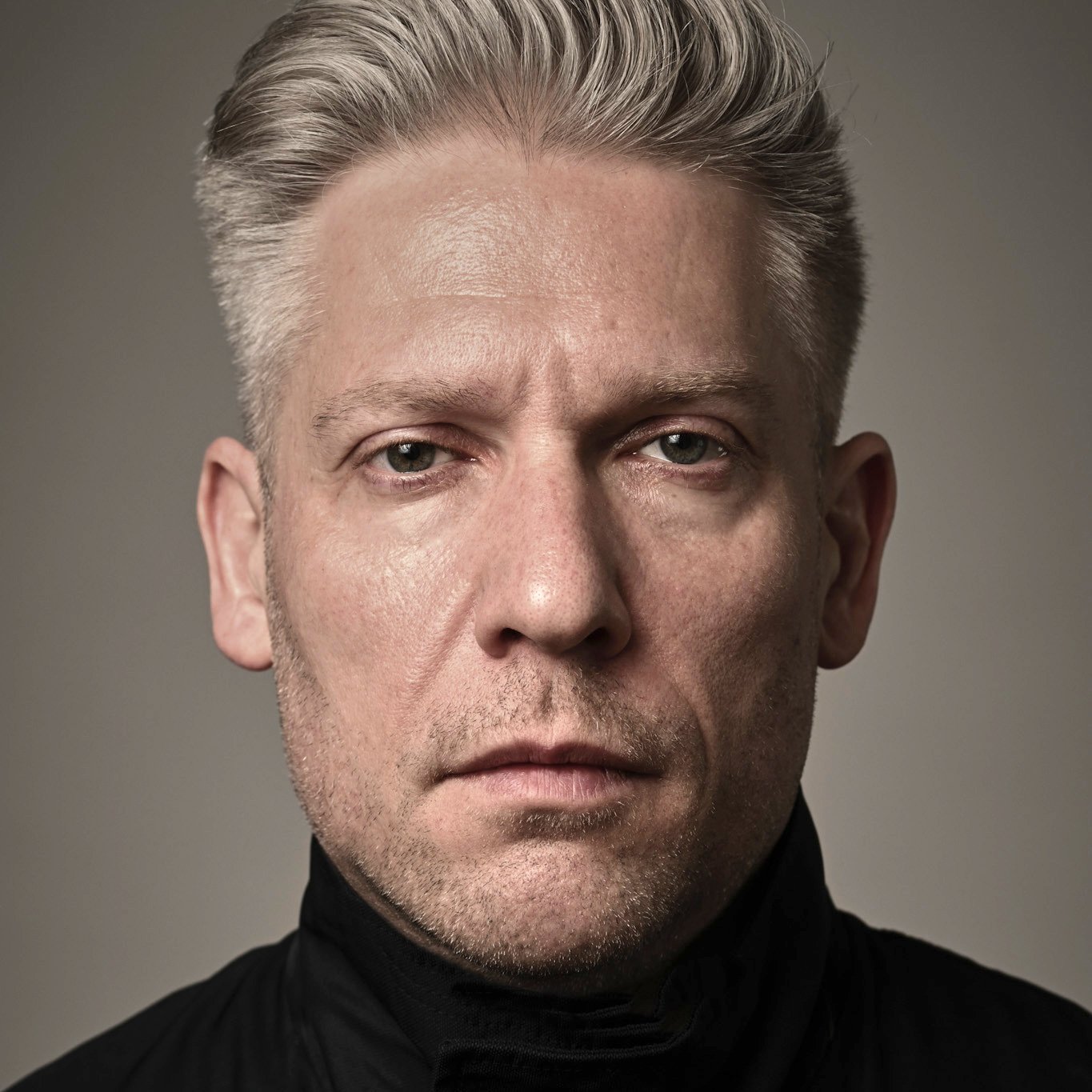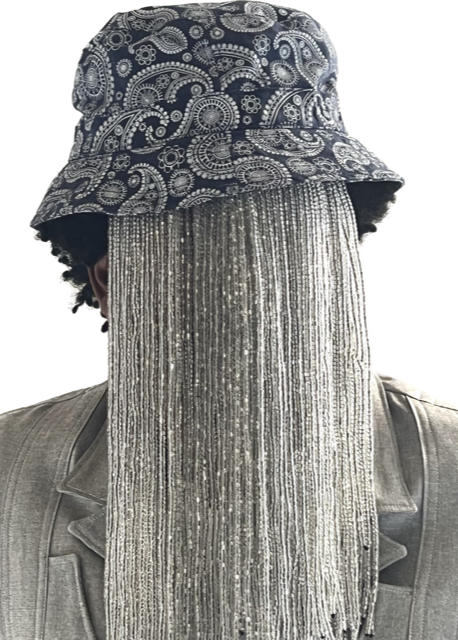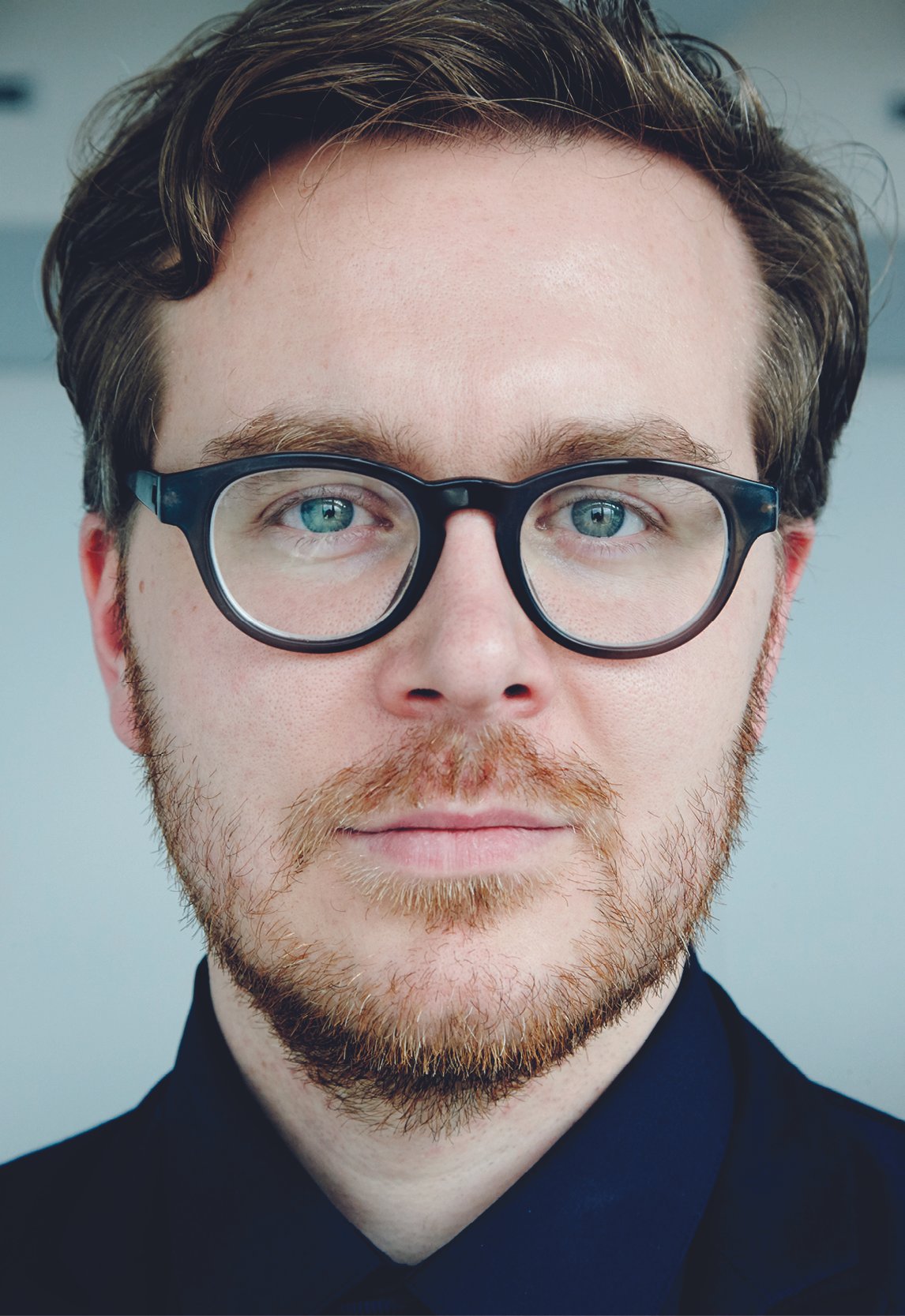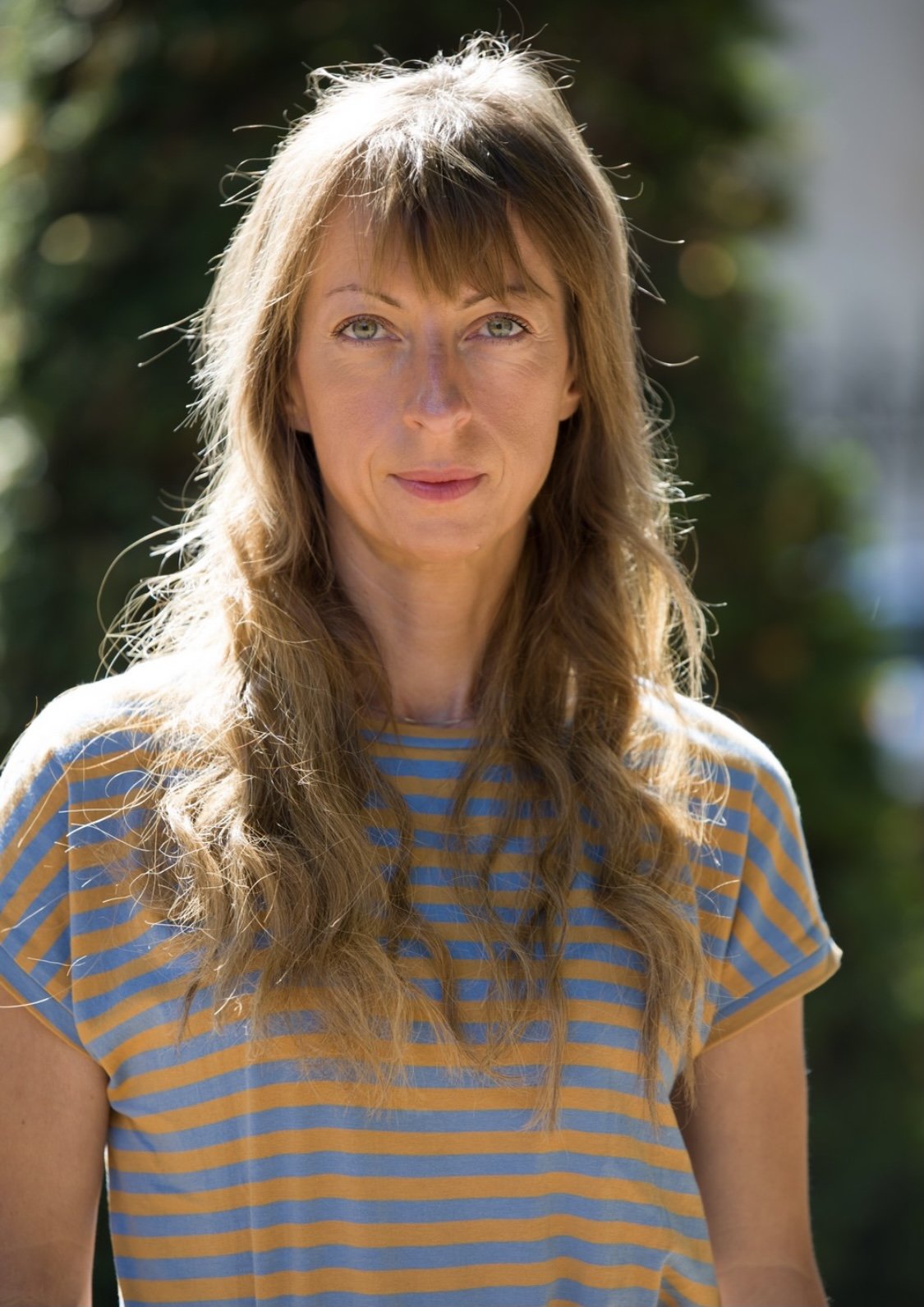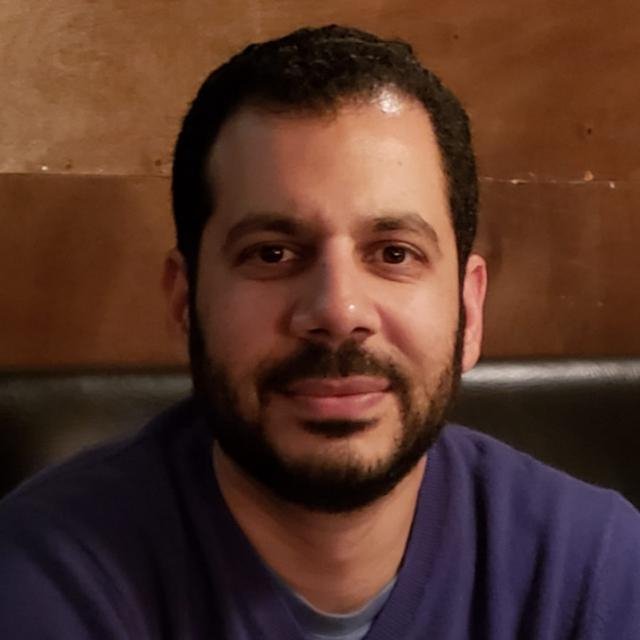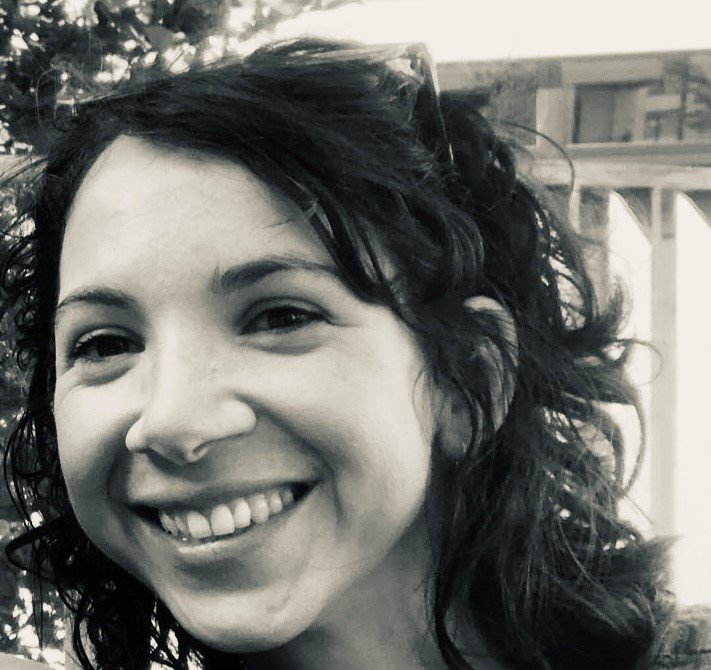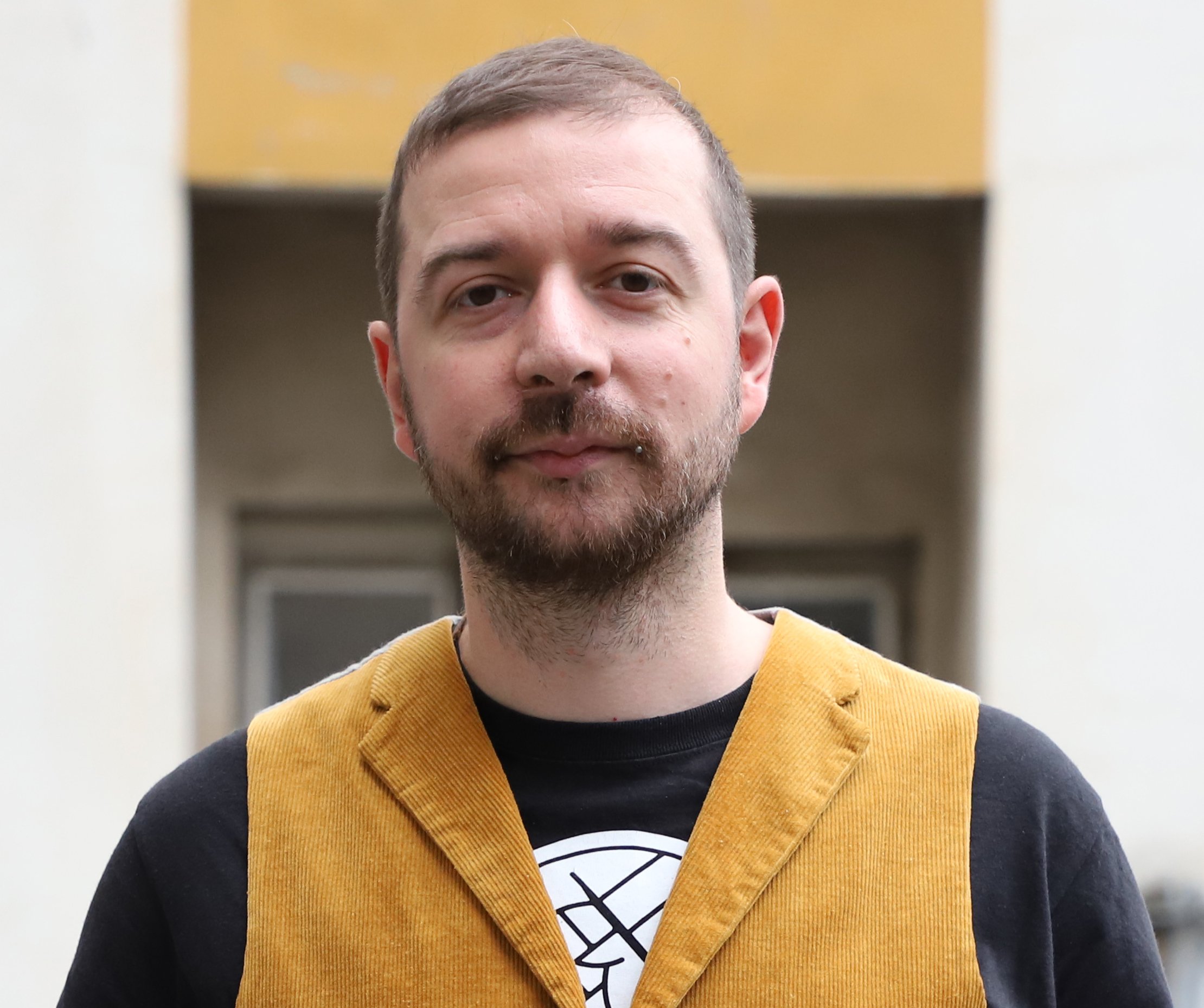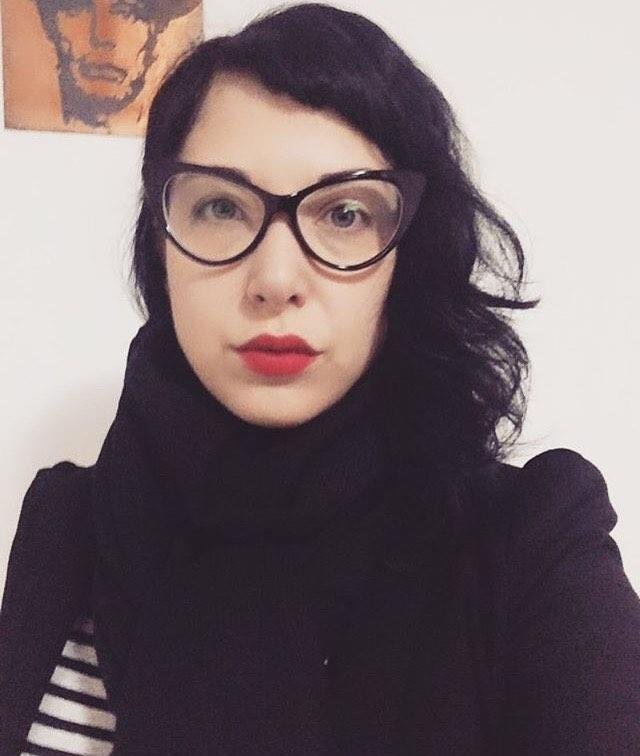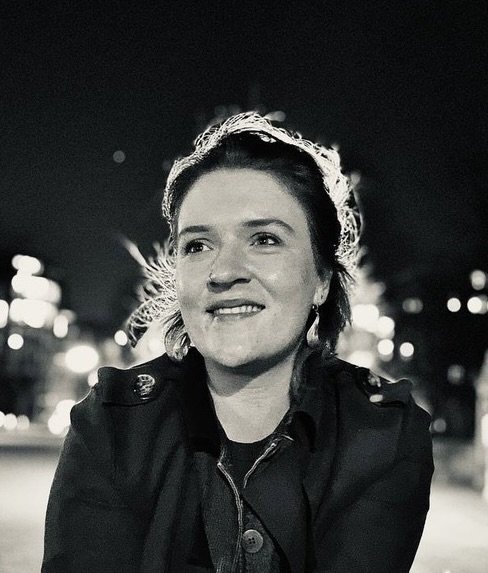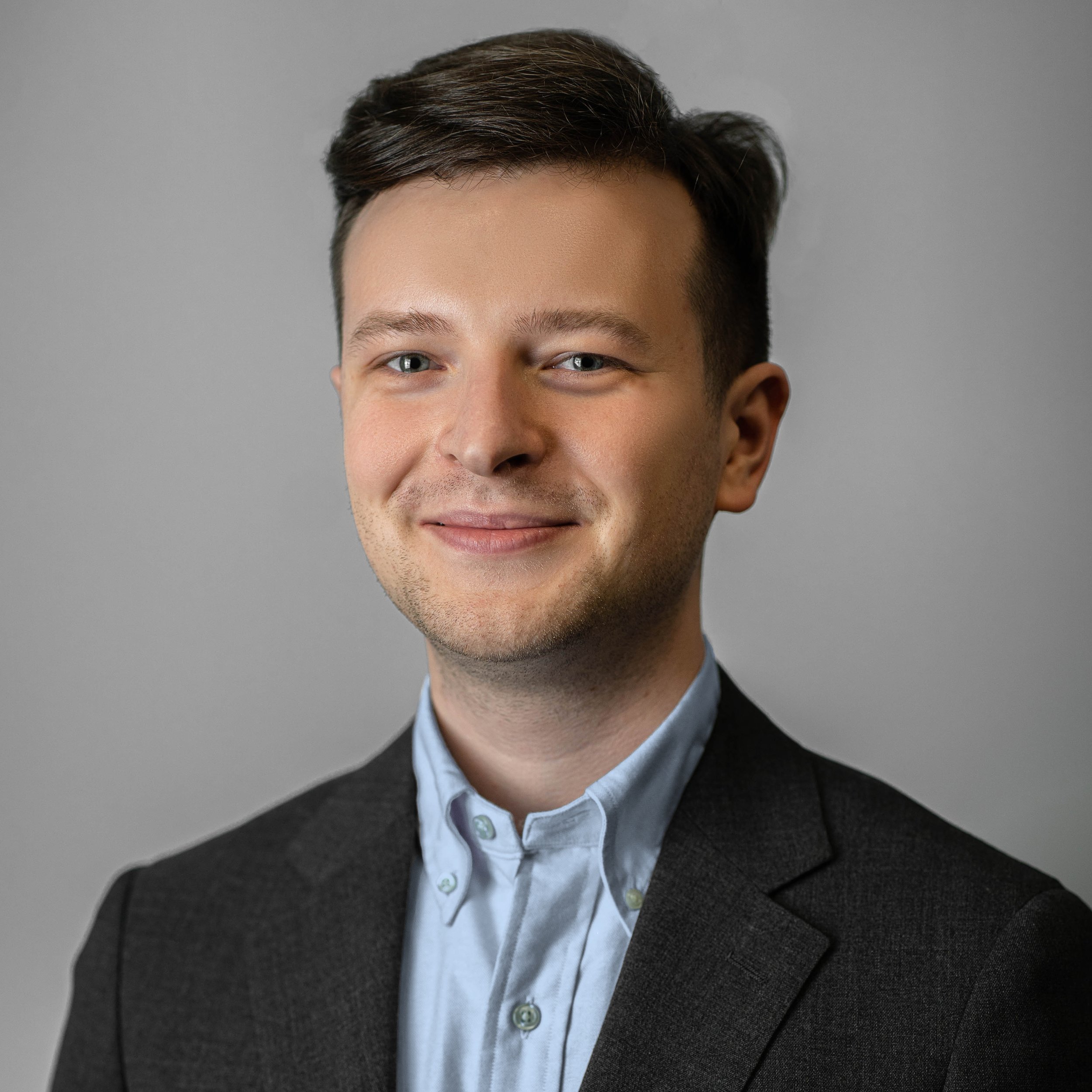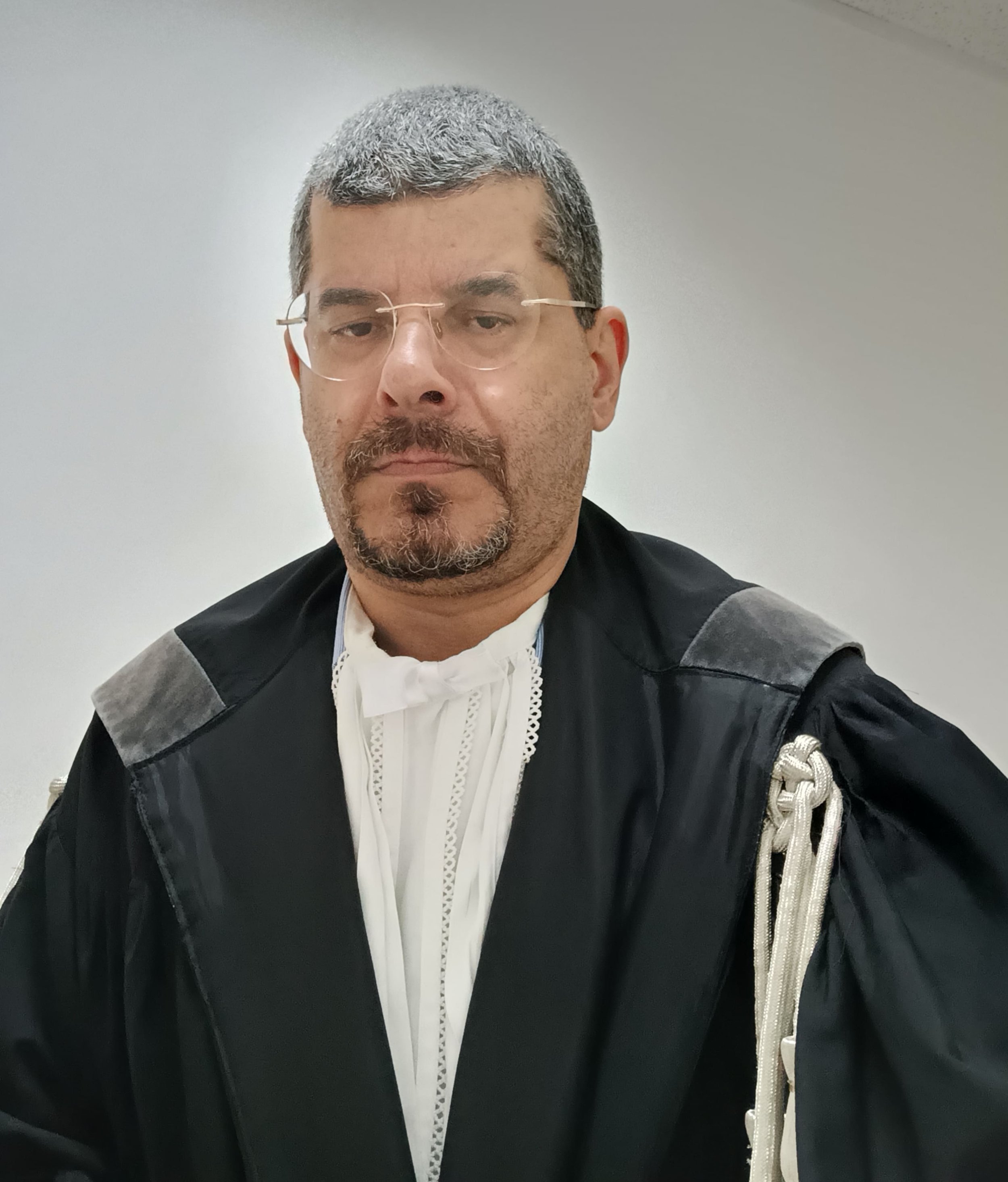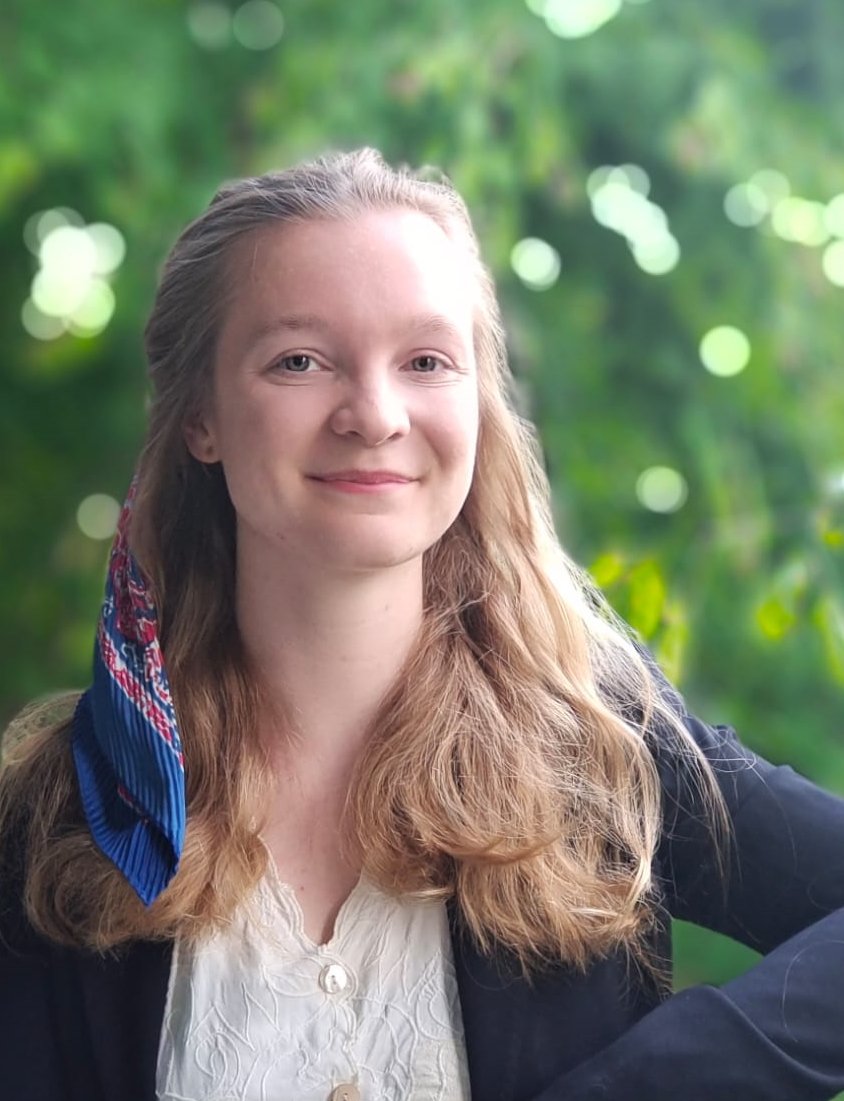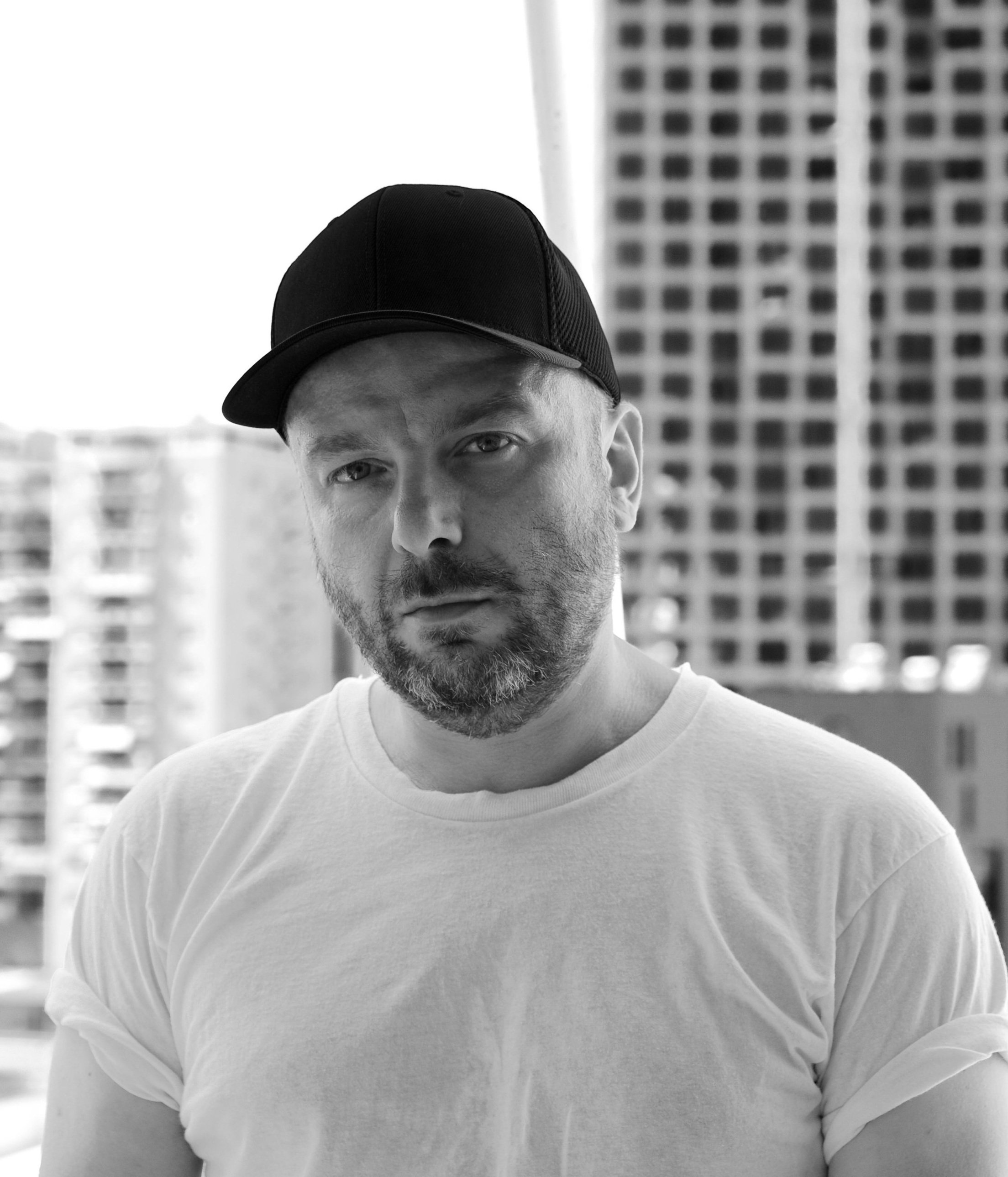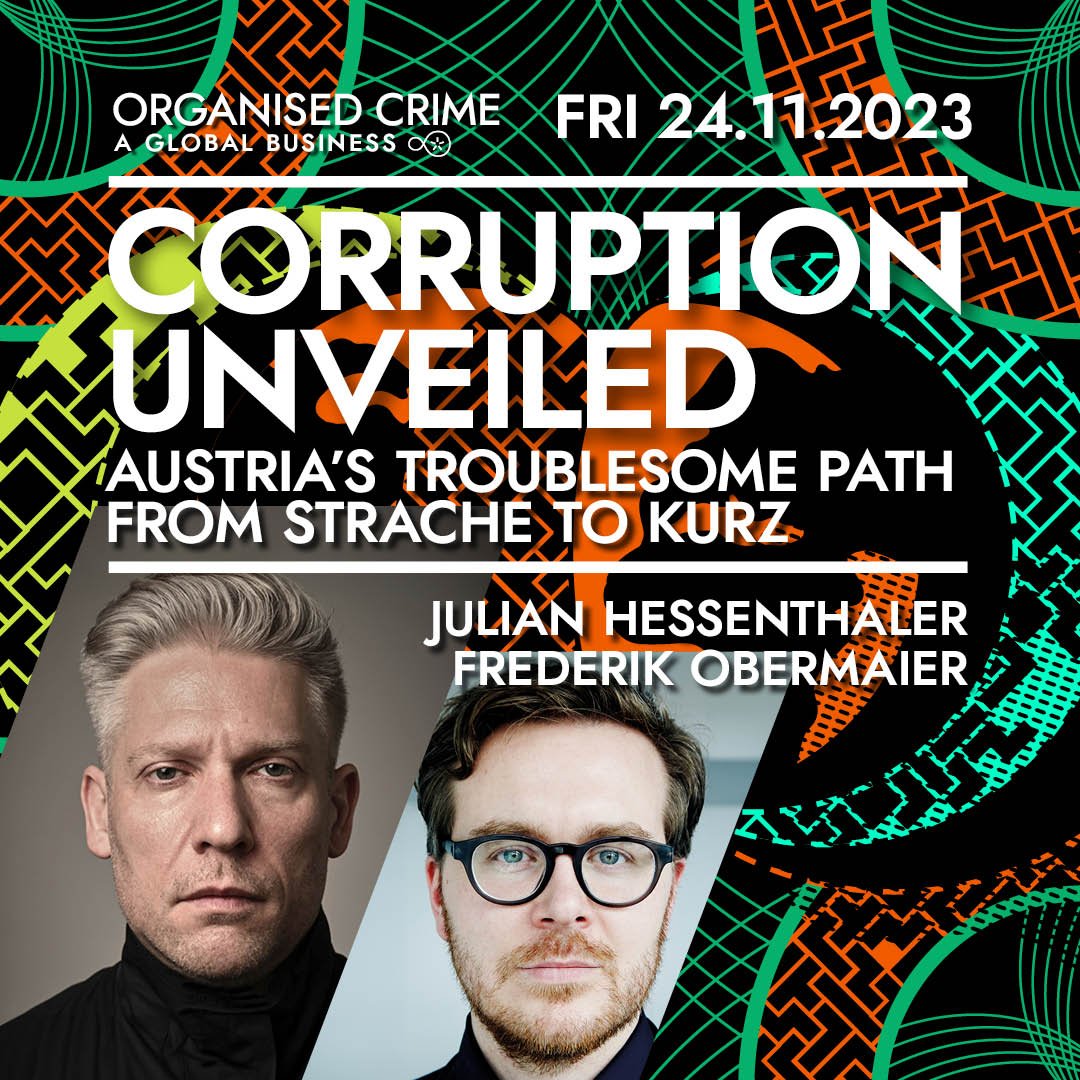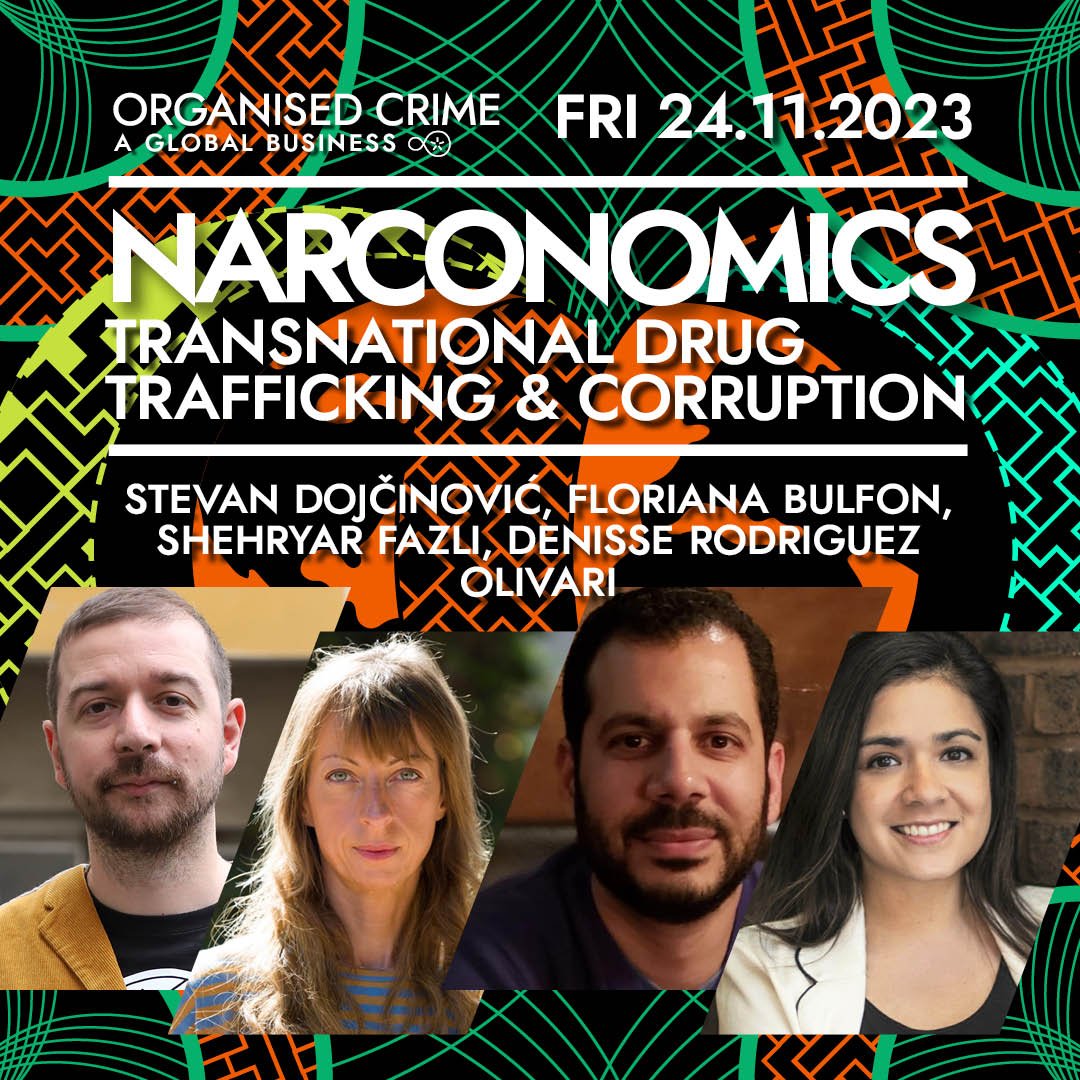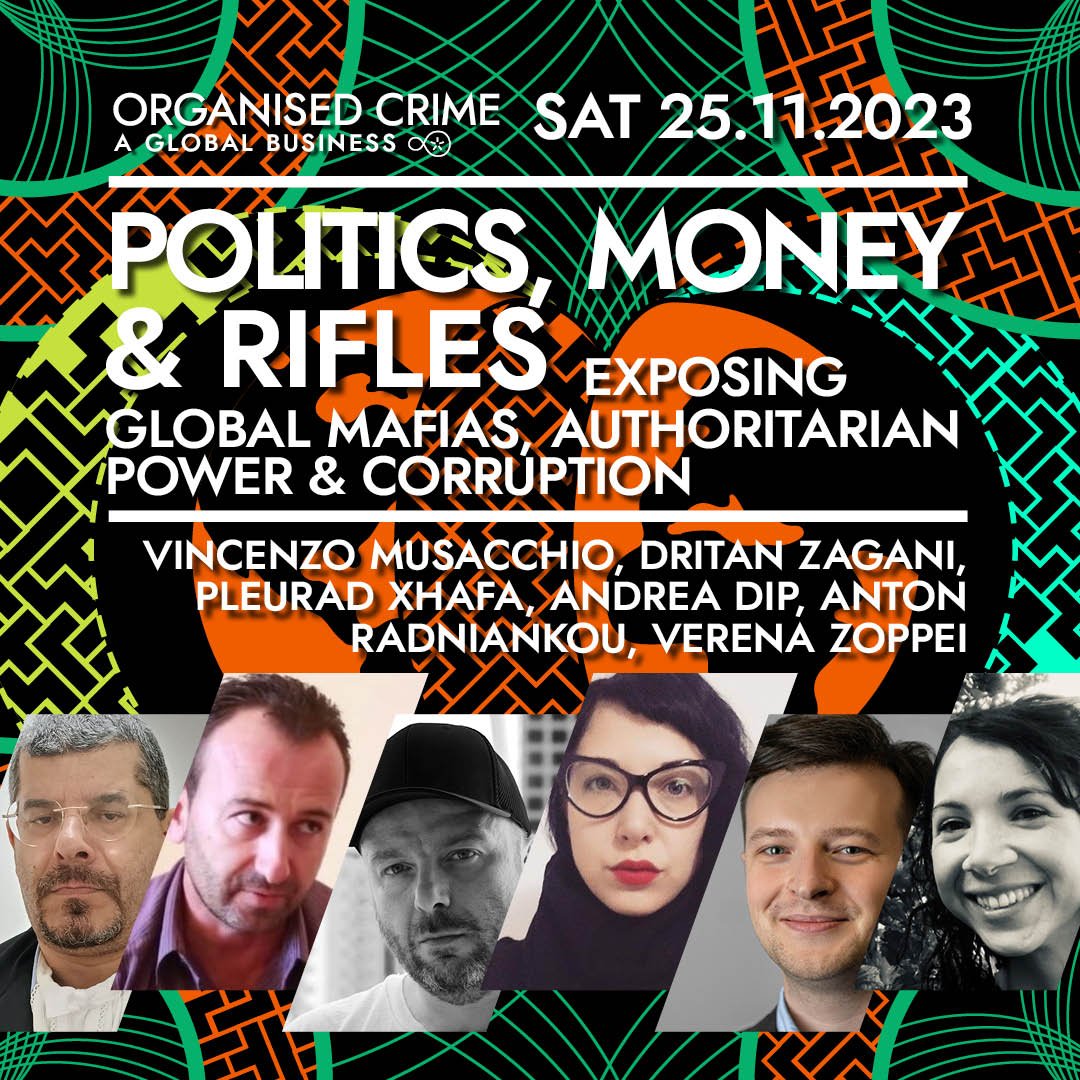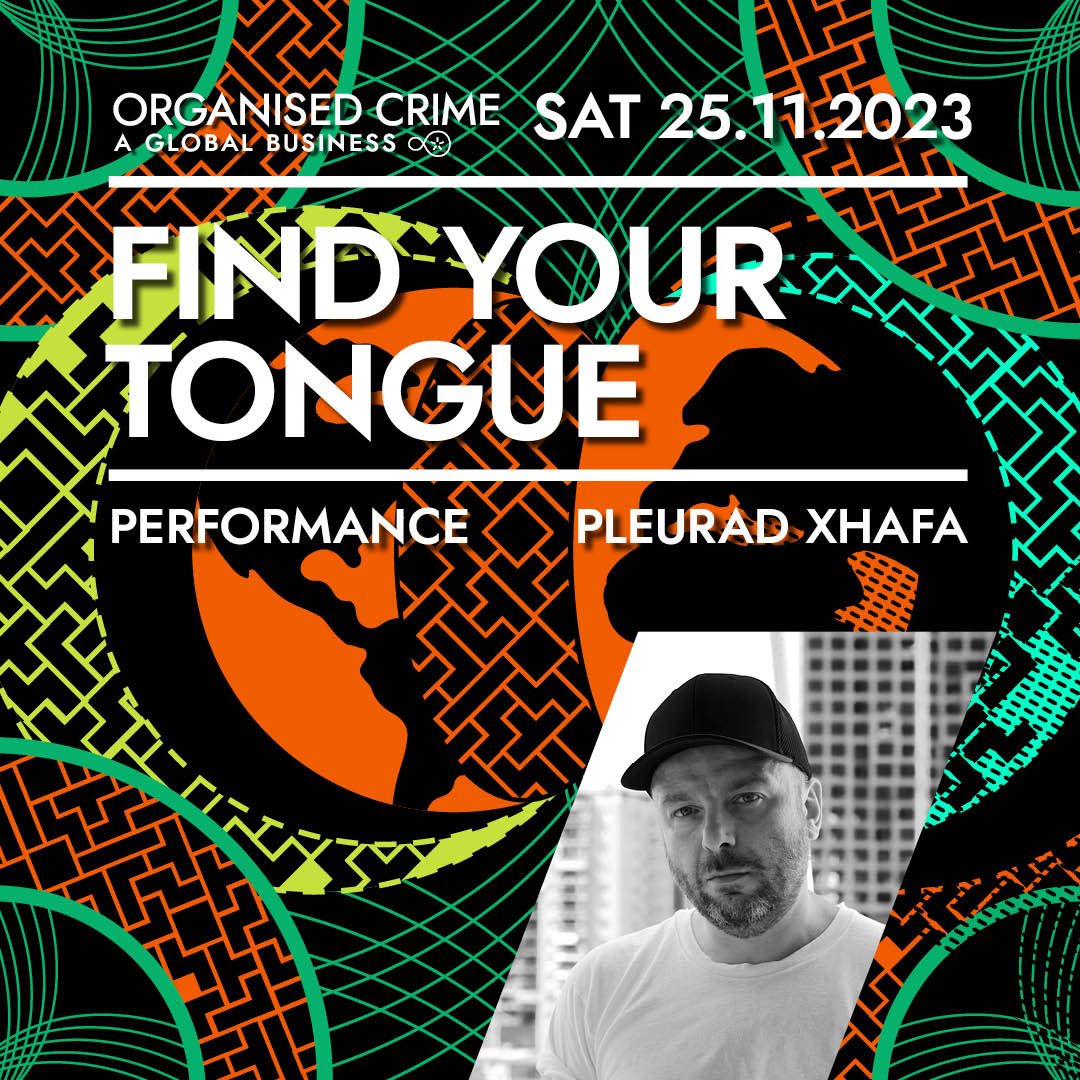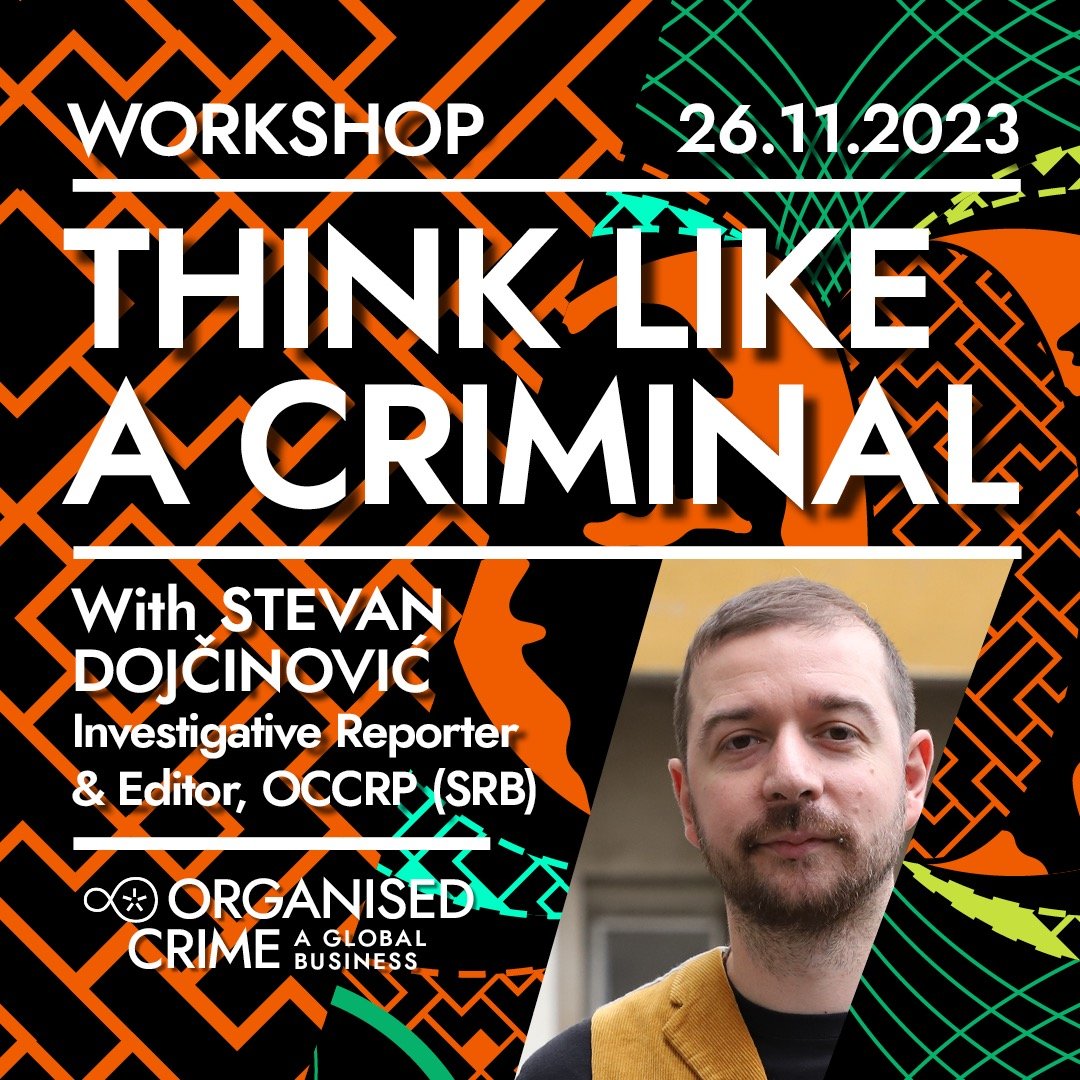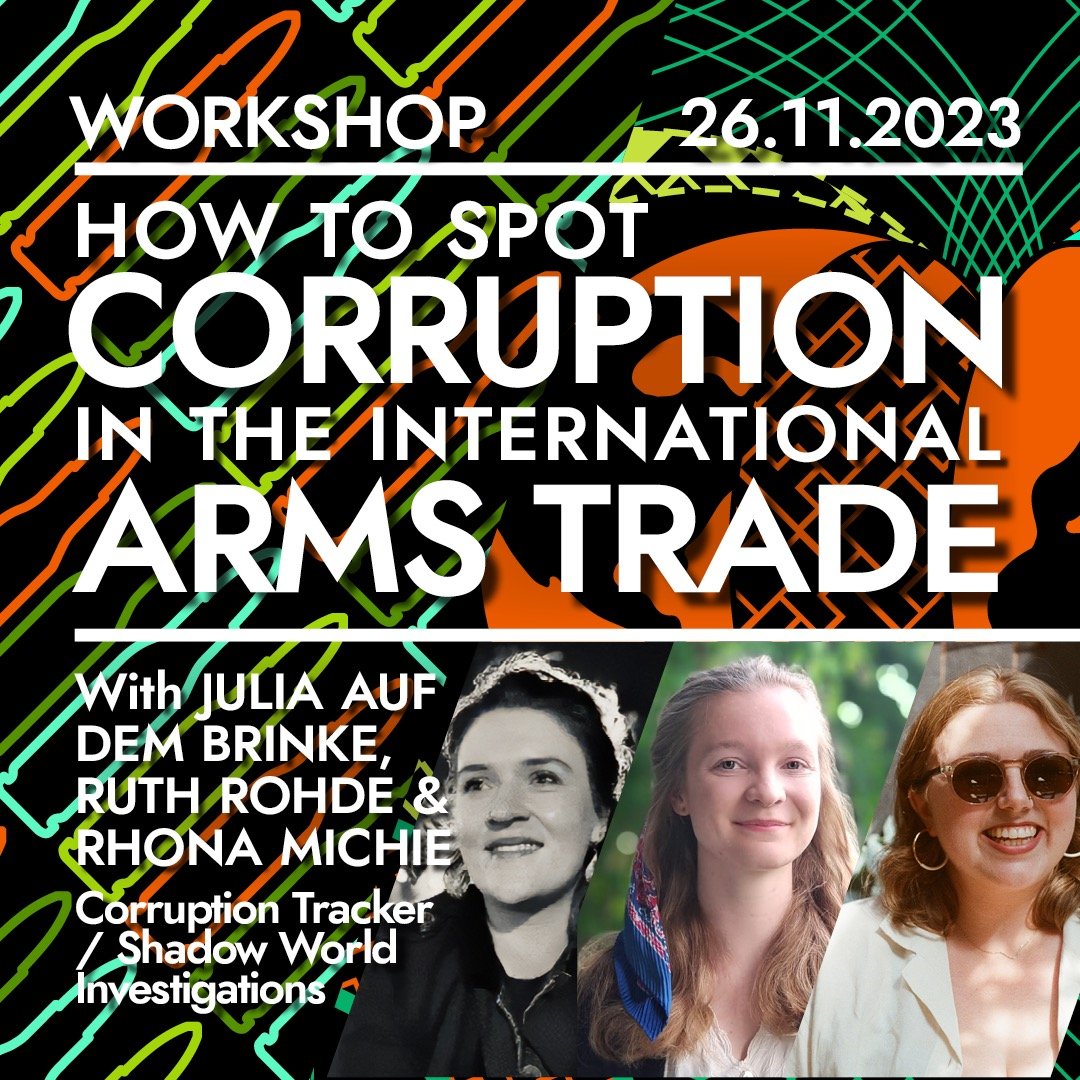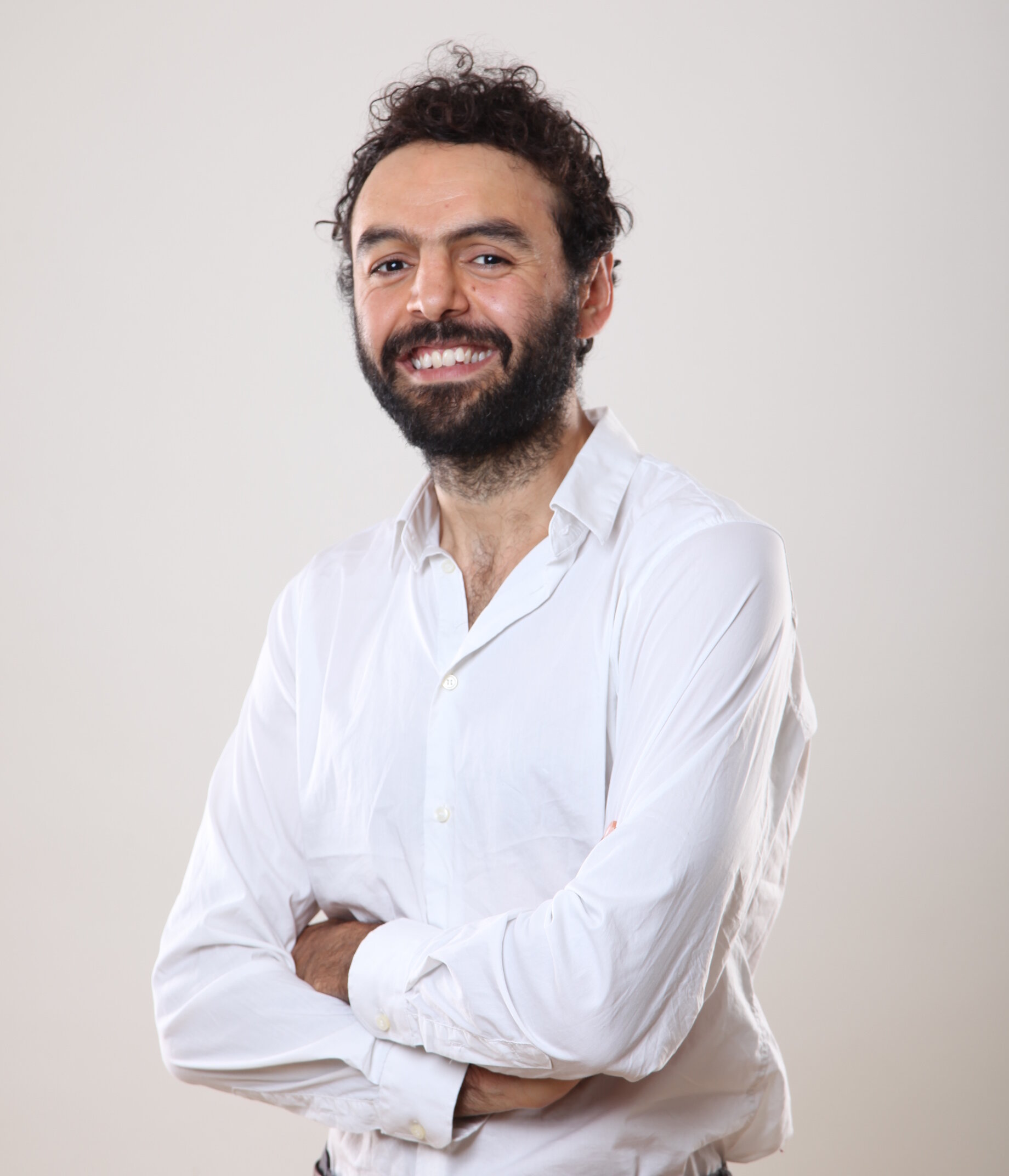#DNL31 · Nov 24–26 · 2023
ORGANISED CRIME
A GLOBAL BUSINESS
THE 31ST CONFERENCE OF THE DISRUPTION NETWORK LAB
studio 1, KUNSTQUARTIER BETHANIEN, marianneplatz 2, 10997 Berlin & STREAMING
Curated by Tatiana Bazzichelli (Director, Disruption Network Lab, IT/DE) &
Mauro Mondello (Investigative Journalist, IT/DE/PT)
Video · Press, Podcasts & Articles · Photos · Tickets · Schedule · Introduction · Full Programme · Workshops · Speakers
Organised Crime · Videos
Friday 24.11.2023 1/:00 CET
Corruption Unveiled: Austria's Troublesome Path from Strache to Kurz · Julian Hessenthaler · Frederik Obermaier
Friday 24.11.2023 19:30 CET
Narconomics: Transnational Drug Trafficking & Corruption · Stevan Dojčinović · Floriana Bulfon · Shehryar Fazli · Denisse Rodriguez Olivari
Saturday 25.11.2023 16:00 CET
Politics, Money & Rifles: Exposing Global Mafias, Authoritarian Power & Corruption · Vincenzo Musacchio · Pleurad Xhafa · Dritan Zagani · Andrea Dip · Anton Radniankou · Verena Zoppei
Saturday 25.11.2023 19:15 CET
Undercover: Combating Organised Crime in Africa · Stephanie Busari ·
Anas Aremeyaw Anas
No registration required to follow the stream. Workshops are not streamed.
Join our newsletter for monthly mails, and our Telegram channel for all event updates!
Press, Podcasts & Articles
Floriana Bulfon: Organised Crime is afraid of words · Il Mitte (in Italian)
Mauro Mondello: Organized crime thrives on crises · Il Mitte (in Italian)
Photos from Organised Crime
Watch all the photos here
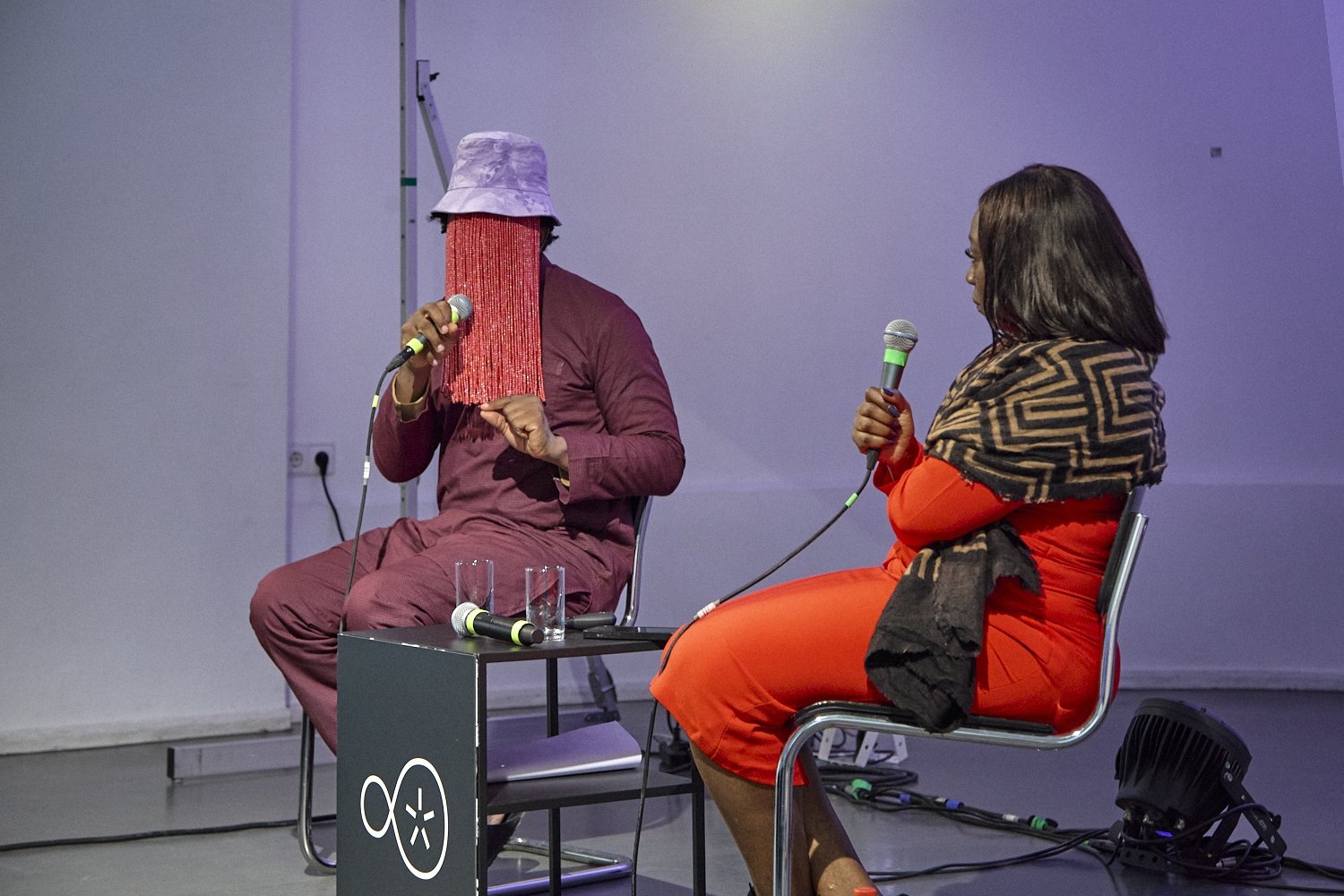
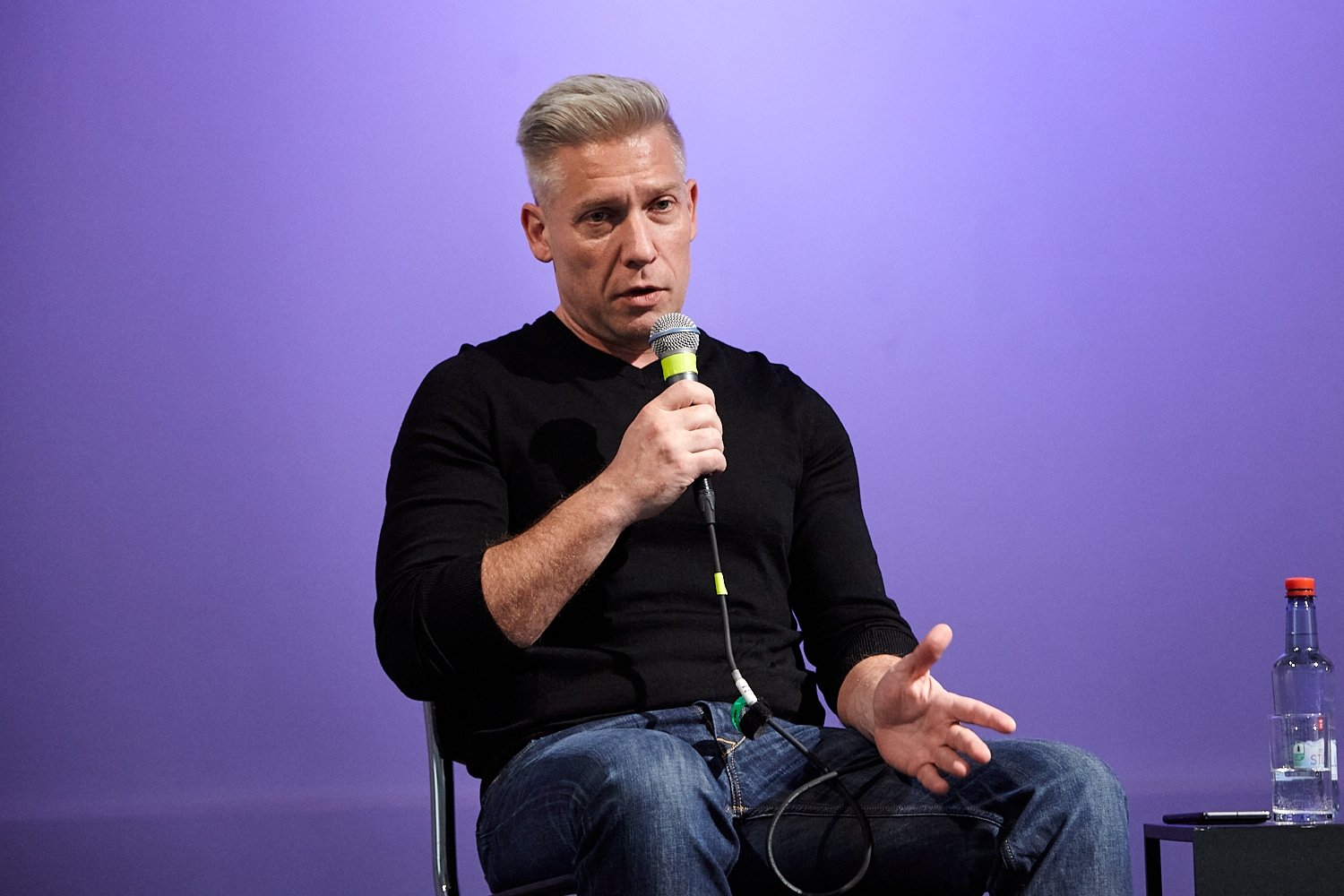
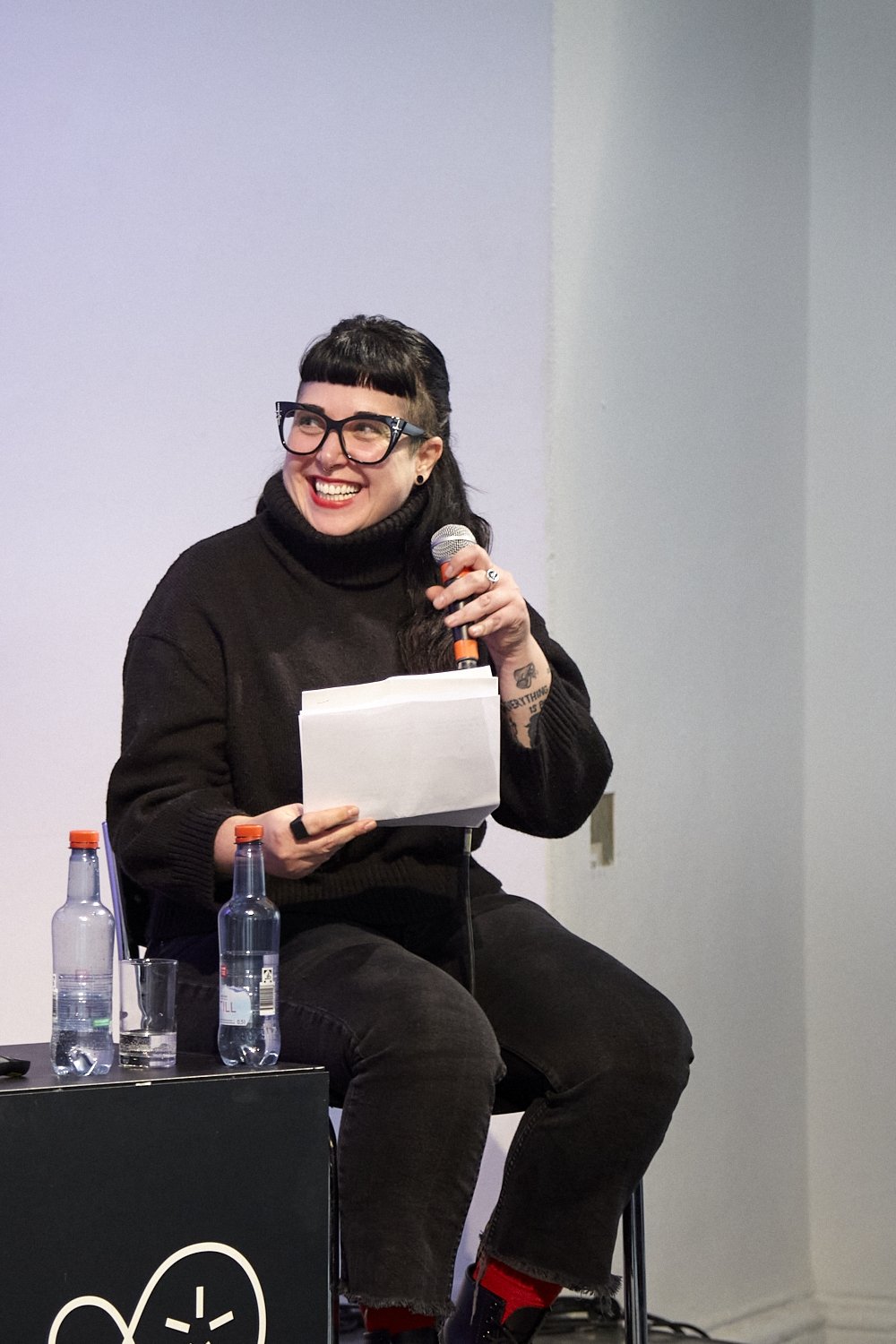
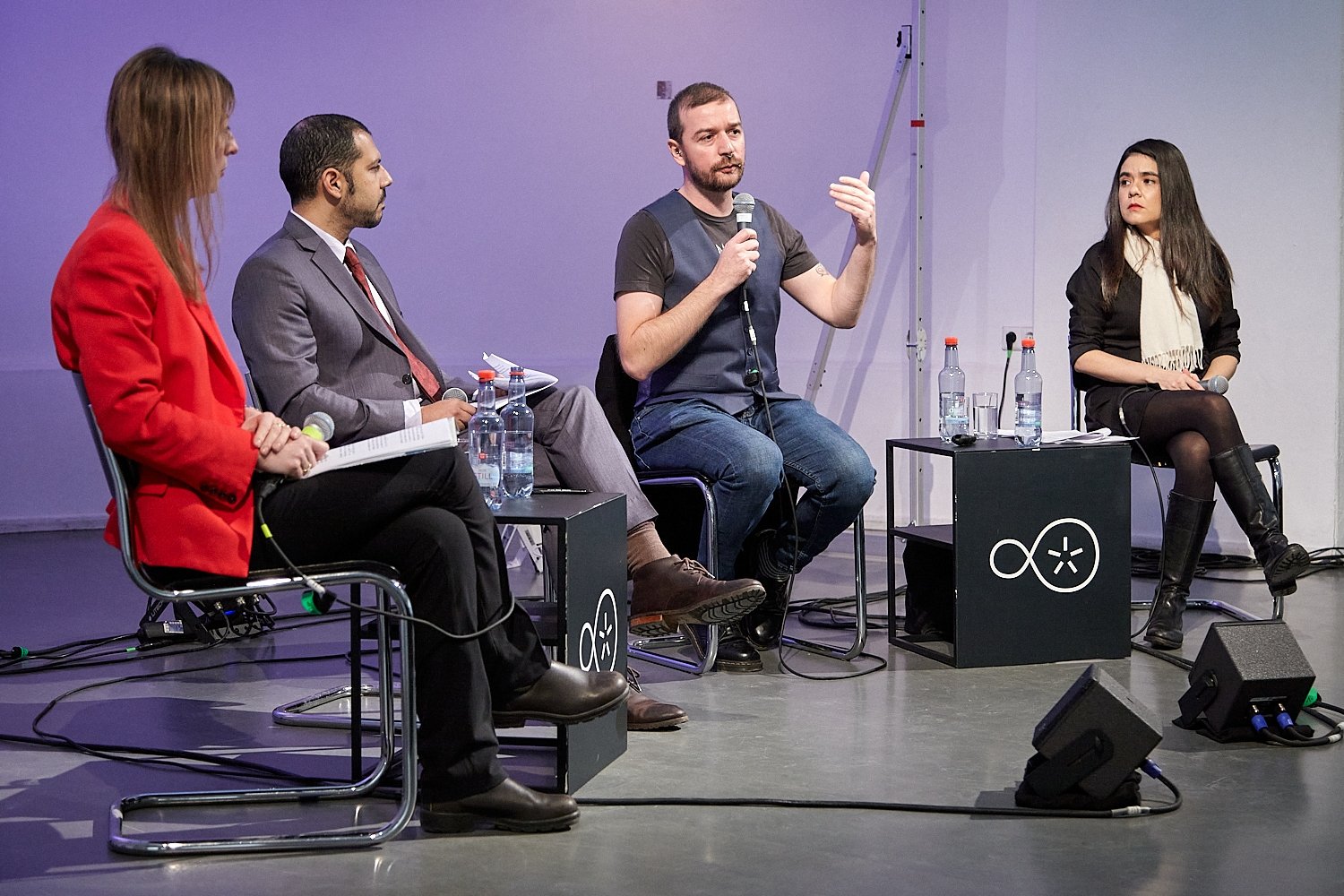
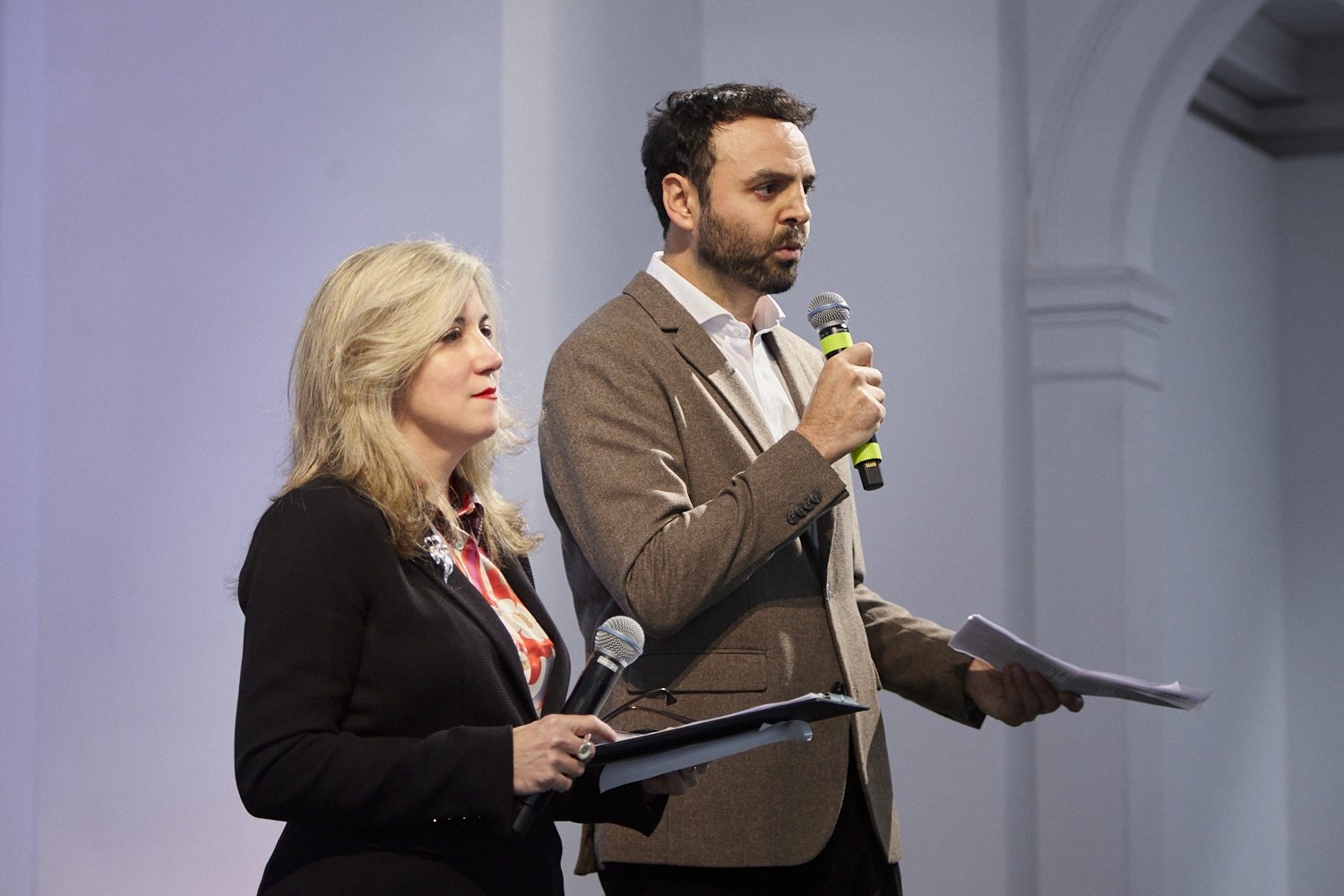
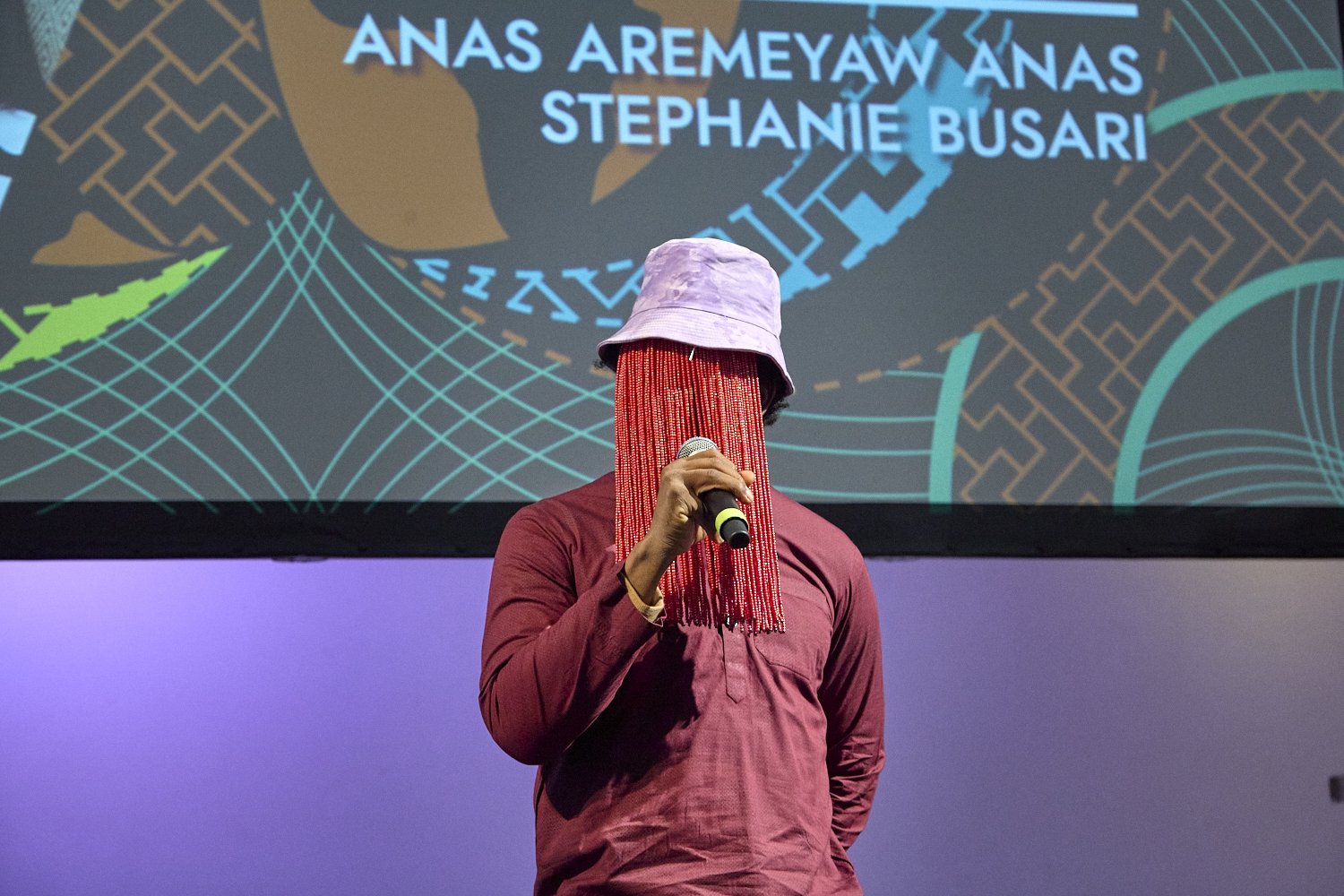
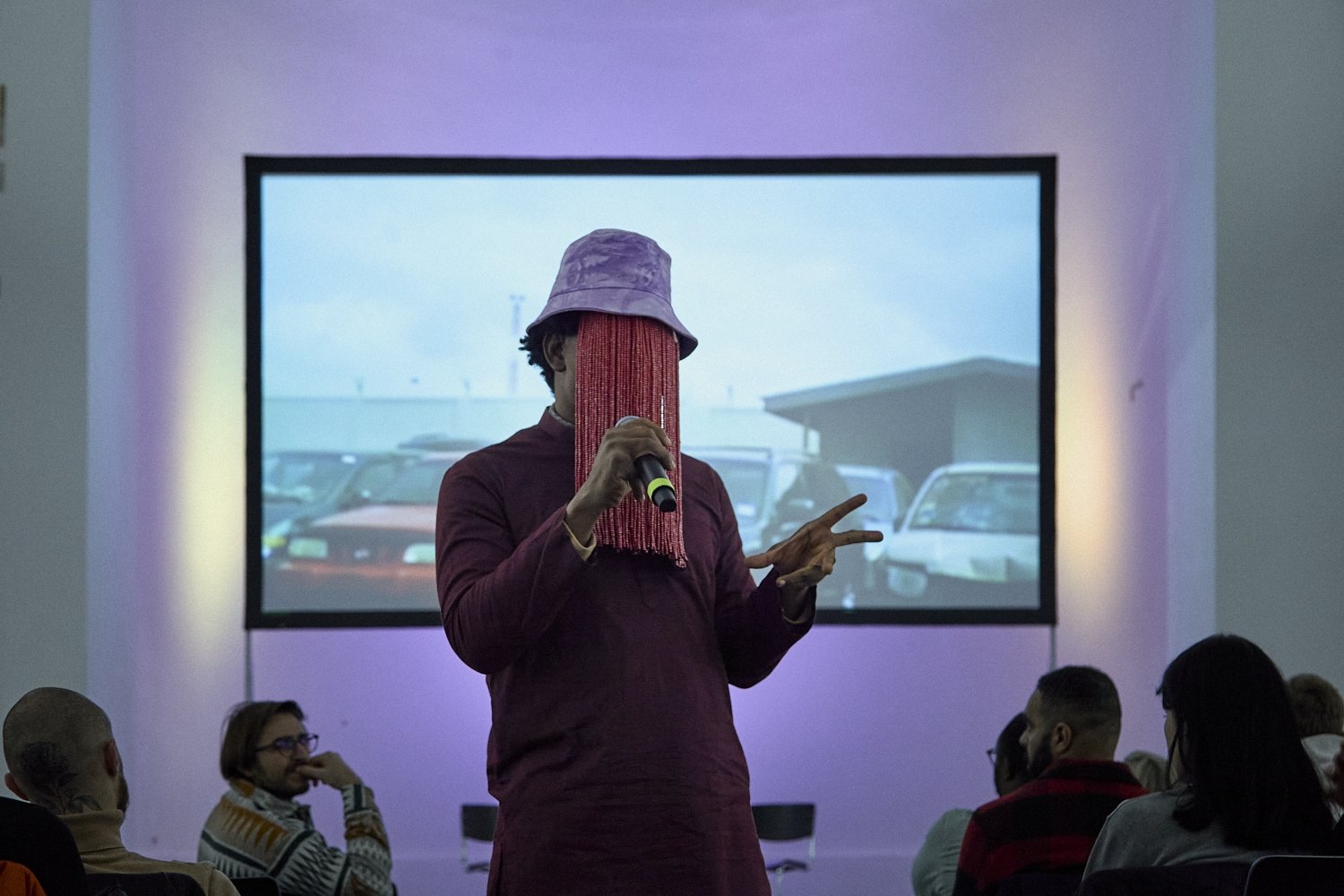
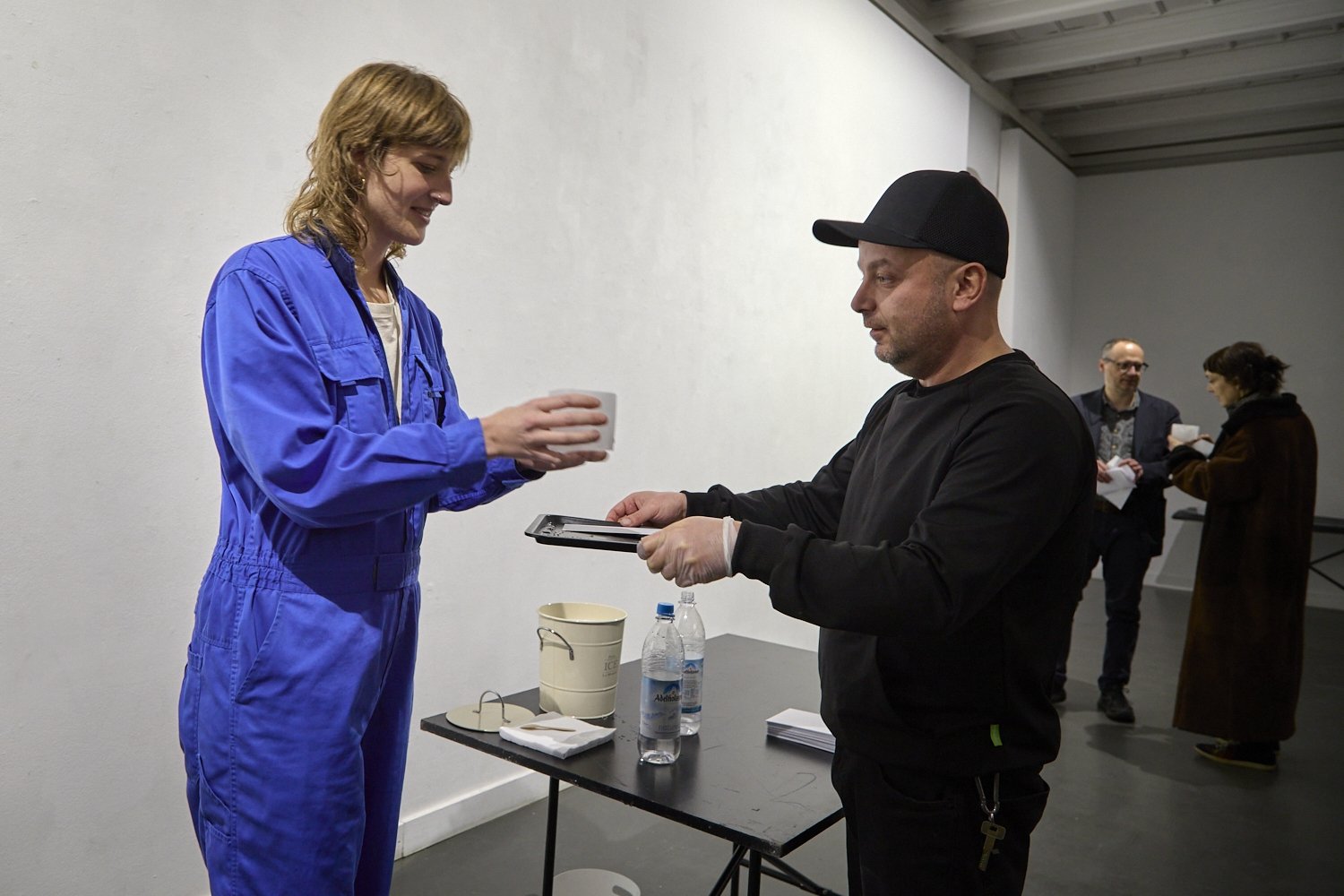
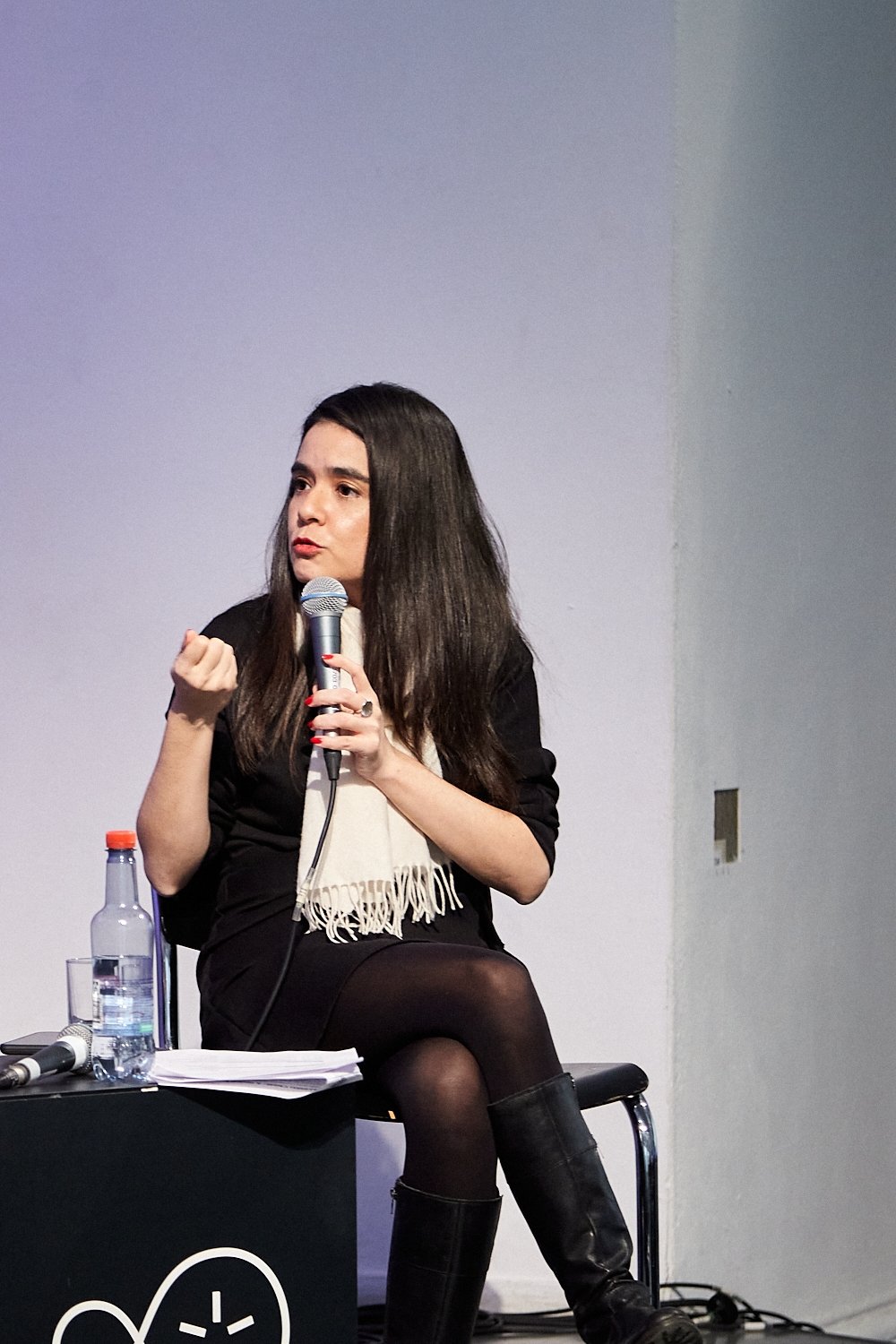
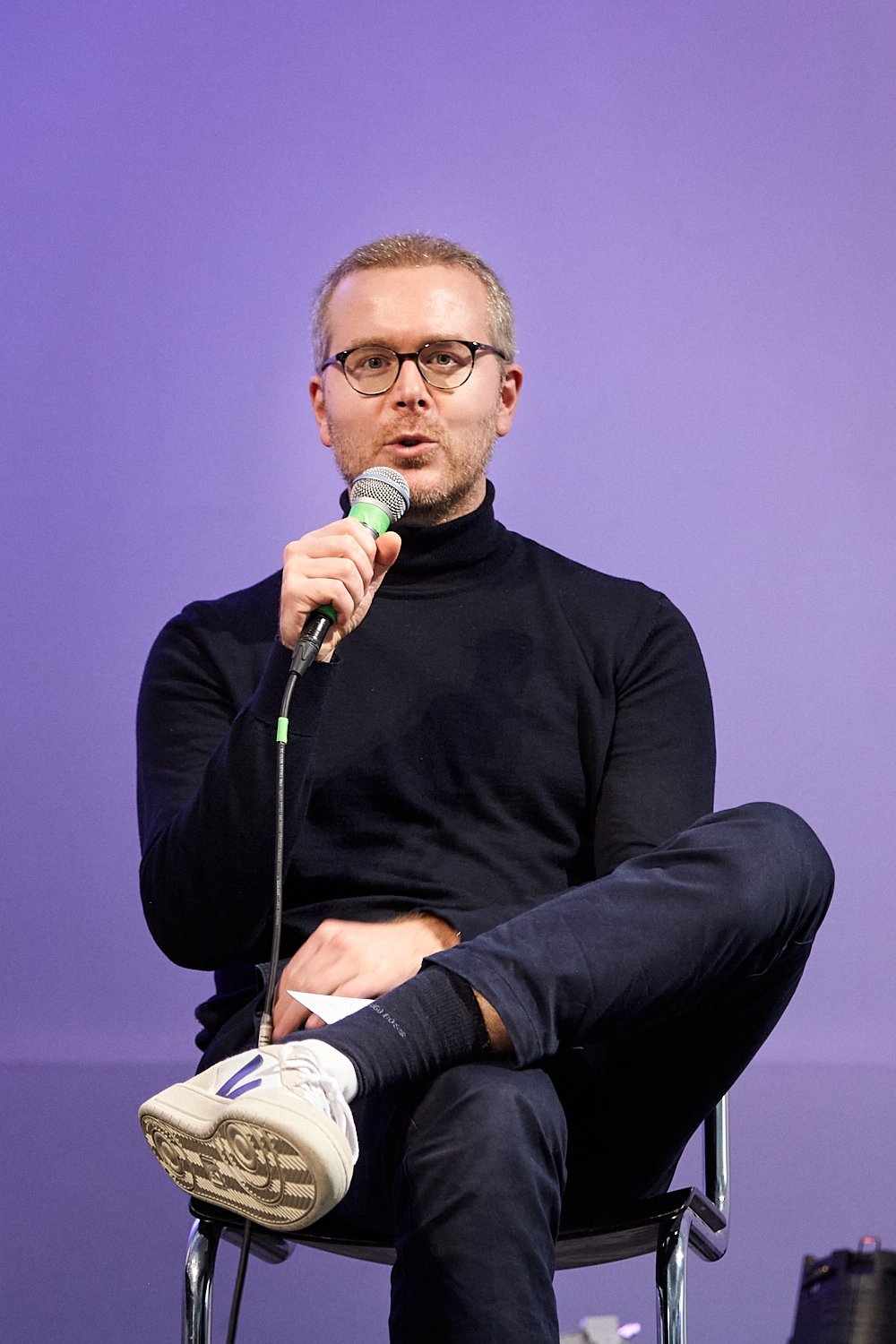
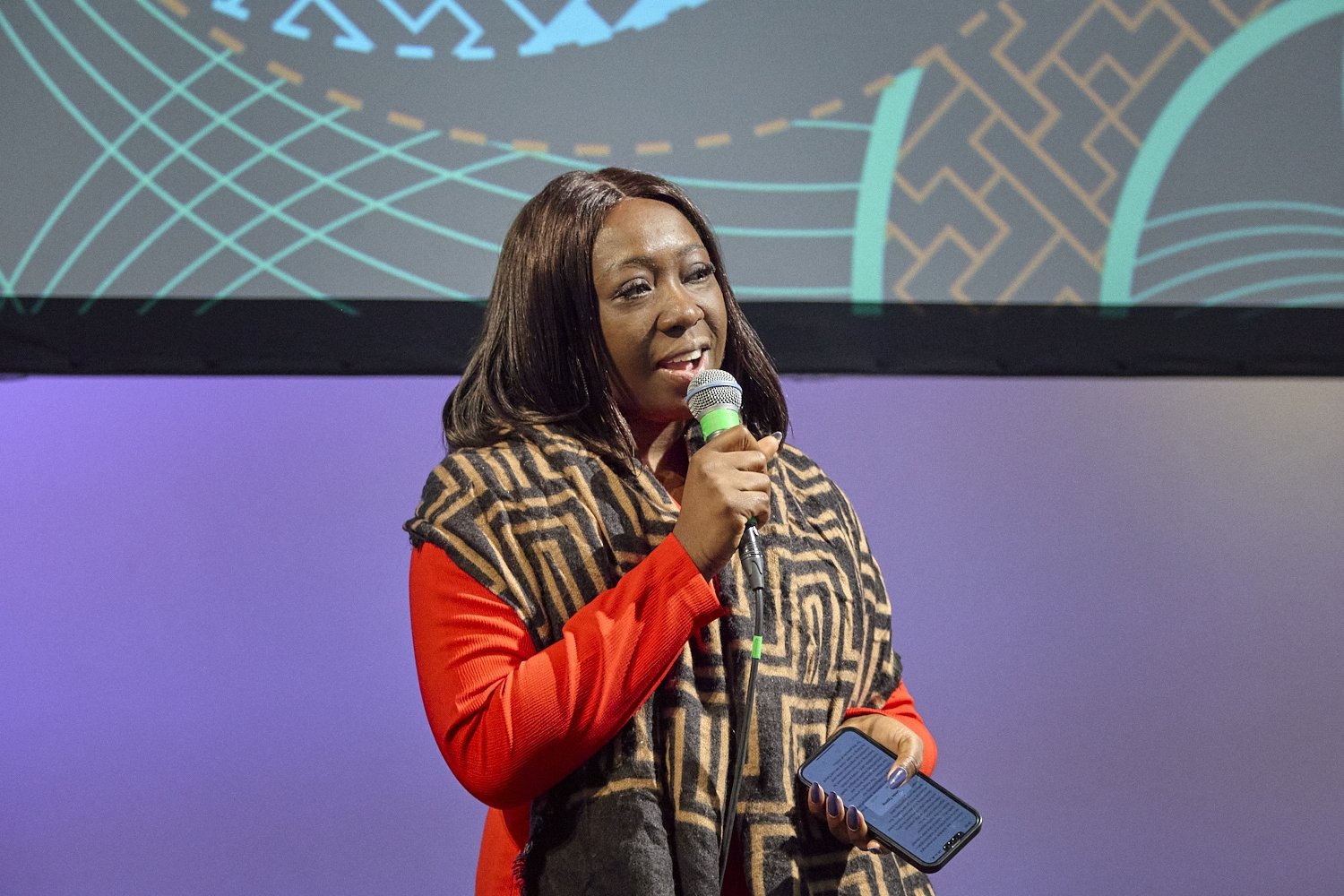
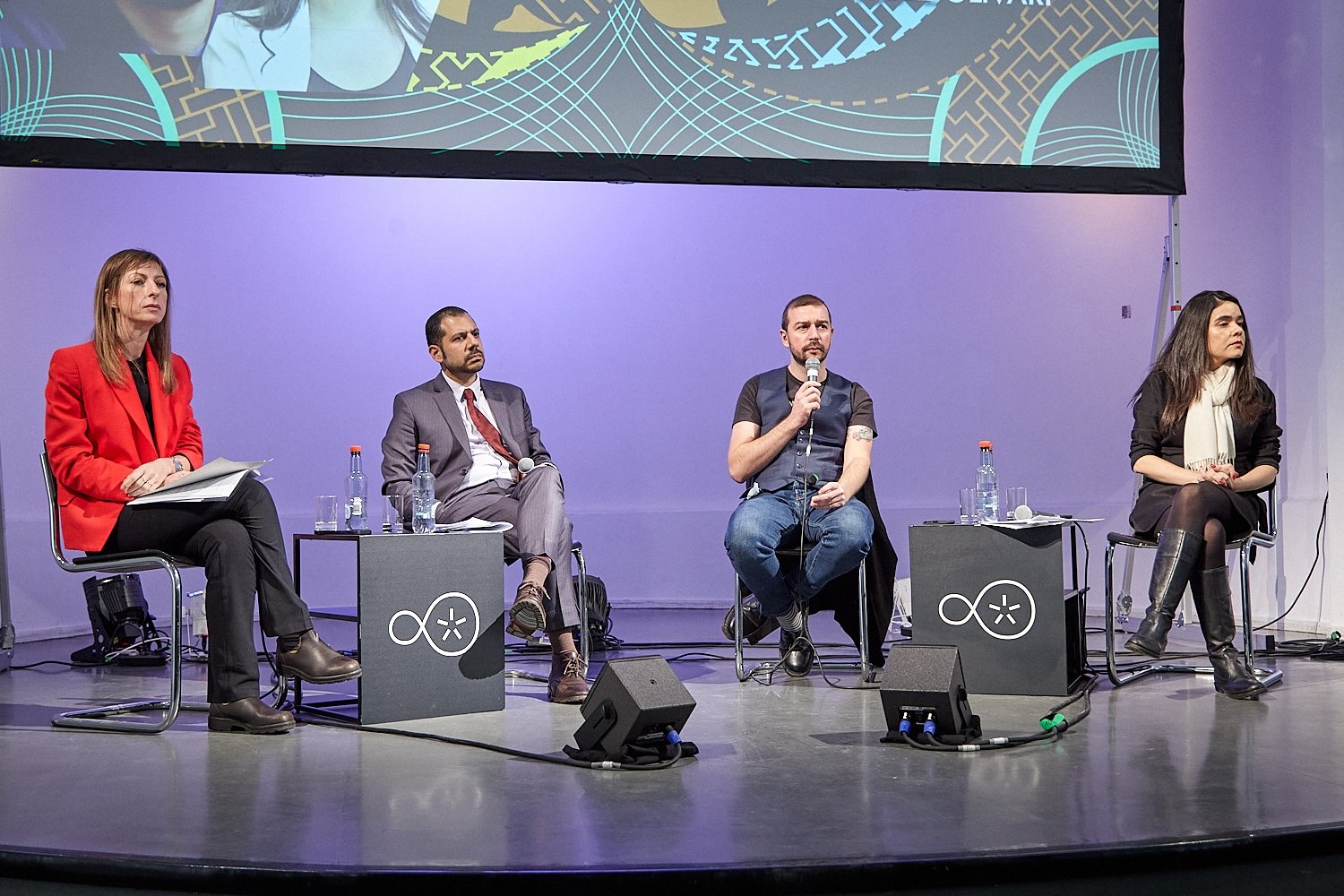
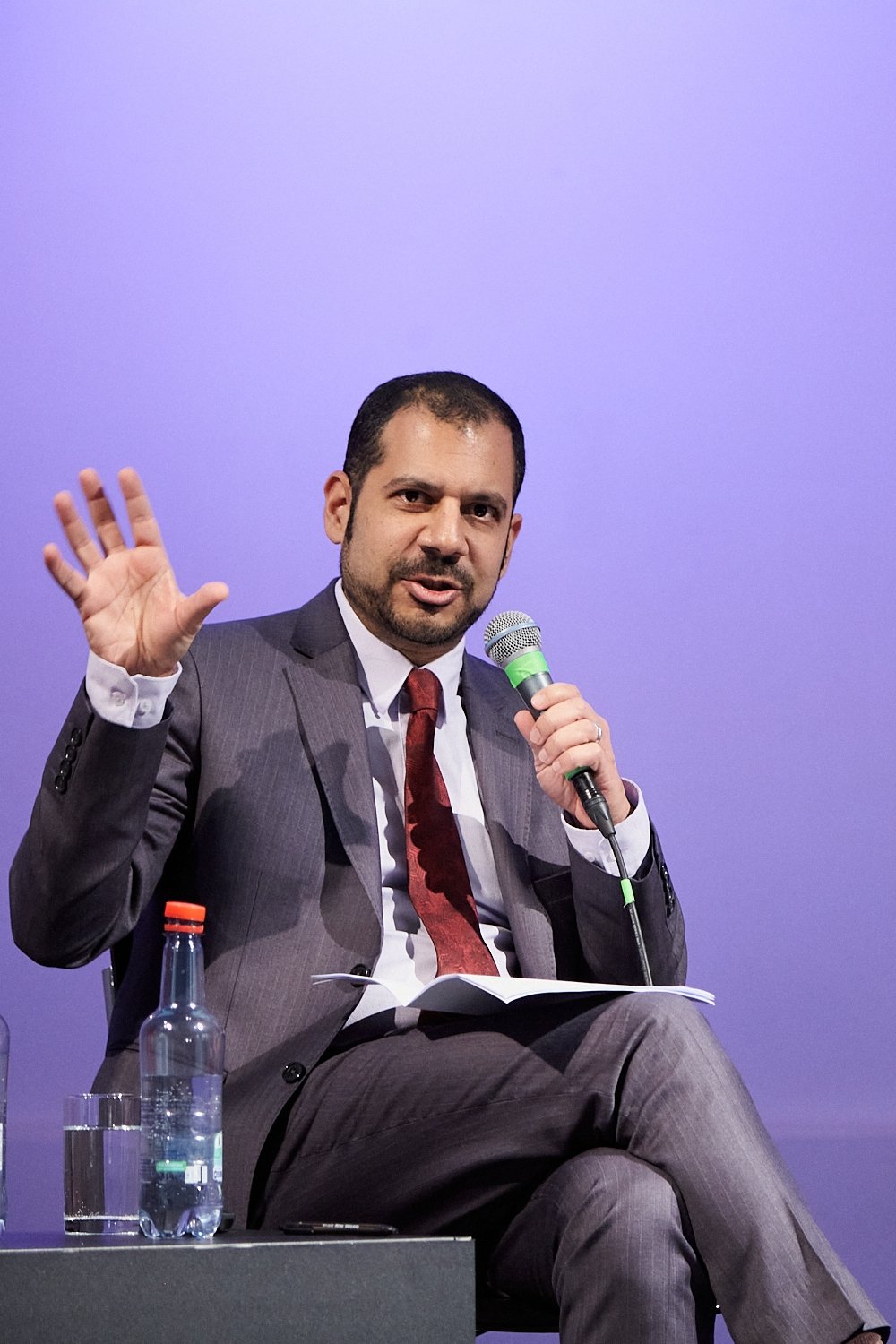
Investigating global systems of organised crime and corruption, and the connections between crime, politics and business.
The 31th conference of the Disruption Network Lab. Curated by Tatiana Bazzichelli and Mauro Mondello
LOCATION: STUDIO 1, KUNSTQUARTIER BETHANIEN, MARIANNENPLATZ 2, 10997 BERLIN
STREAMED FOR FREE
Get Tickets now!
Support critical events & research by becoming a member.
For just 50€ you will get access to a full year of events!
No registration required to follow the stream. Workshops are not streamed
Julian Hessenthaler · Anas Aremeyaw Anas · Frederik Obermaier · Stephanie Busari · Floriana Bulfon · Stevan Dojčinović · Anton Radniankou · Vincenzo Musacchio · Dritan Zagani · Pleurad Xhafa · Andrea Dip · Shehryar Fazli · Verena Zoppei · Denisse Rodriguez Olivari · Julia Auf dem Brinke · Rhona Michie · Ruth Rohde
Speaker BioS ⌄
16:30 CET · Doors open
17:00 – 17:15 CET · OPENING
Tatiana Bazzichelli (Artistic Director, Disruption Network Lab, IT/DE), Mauro Mondello (Investigative Journalist, IT/DE/PT).
17:15 – 18:45 CET · KEYNOTE · Corruption Unveiled: Austria's Troublesome Path from Strache to Kurz
Julian Hessenthaler (Private Investigator, AT). In conversation with Frederik Obermaier (Investigative Journalist, DE).
19:30 – 21:30 CET · PANEL · Narconomics: Transnational Drug Trafficking & Corruption
Stevan Dojčinović (Investigative Reporter & Editor, OCCRP, SRB), Floriana Bulfon (Investigative Journalist, IT), Shehryar Fazli (Author & Senior Policy Advisor, Open Society–Asia Pacific, UK). Moderated by Denisse Rodriguez Olivari (Researcher, School of Transnational Governance, EUI, PE/IT).
Saturday November 25, 2023 · Get Tickets
15:30 CET · Doors open
16:00 – 16:10 CET · INTRODUCTION
Tatiana Bazzichelli (Artistic Director, Disruption Network Lab, IT/DE), Mauro Mondello (Investigative Journalist, IT/DE/PT).
16:10 – 18:15 CET · PANEL · Politics, Money & Rifles: Exposing Global Mafias, Authoritarian Power & Corruption
Vincenzo Musacchio (Criminologist, IT), Dritan Zagani (Whistleblower, Former Anti-Drugs Police Officer, AL), Pleurad Xhafa (Artist & Activist, AL), Andrea Dip (Investigative Journalist & Researcher, BR/DE), Anton Radniankou (Chair of the Board, Center for New Ideas, BY/PL). Moderated by Verena Zoppei (Advisor, Anti-Corruption & Integrity, GIZ, IT/DE).
18:30 – 19:00 CET · PERFORMANCE · Find Your Tongue
“Find Your Tongue”, Pleurad Xhafa (Artist & Activist, AL).
19:15 – 20:45 CET · KEYNOTE · Undercover: Combating Organised Crime in Africa
Anas Aremeyaw Anas (Investigative Journalist, GH). Moderated by Stephanie Busari (Senior Editor for Africa, CNN, UK/NG).
Sunday November 26, 2023 · Get Tickets
11:00 – 13:00 · WORKSHOP 1: Think Like a Criminal
Stevan Dojčinović (Investigative Reporter & Editor, OCCRP, SRB).
14:30 – 16:30 · WORKSHOP 2: How to Spot Corruption in the International Arms Trade: Identifying Red Flags with Open Source Investigations
Julia Auf dem Brinke (Co-Founder, Corruption Tracker, DE), Ruth Rohde (Co-Founder & Programme Manager, Corruption Tracker, DE/UK), Rhona Michie (Director of Projects & Planning, Shadow World Investigations, UK).
Back to top
Meet-Ups & Pre-Events · Get Tickets
Nov 2, 2023, 19:00 · ACUD MACHT NEU · Register
Let’s Talk About Corruption, Arms Trade & Organised Crime
Meet-Up with Julia Auf dem Brinke (Co-Founder, Corruption Tracker, DE)
The international arms trade is by design an elite space, grounded within exclusive networks, corrupt practices and known for its opaque deals, making it difficult to grasp when you are standing on the outside. And let's be honest – most people are on the outside. To make this daunting and elusive field a little bit more accessible we are inviting you to join us for an evening of talking about corruption, arms trade and organised crime. We are going to discuss why the arms trade is such a good target for corrupt actors and how it interconnects with organised crime.
ORGANISED CRIME: A Global Business
Investigating global systems of organised crime and corruption, and the connections between crime, politics and business.
A programme of panels, workshops, and PERFORMANCE curated by Tatiana Bazzichelli AND MAURO MONDELLO.
Funded by:
Senatsverwaltung für Kultur und Europa (Senate Department for Culture and Europa, Berlin), The Reva and David Logan Foundation and Open Society Foundations. Part of New Perspectives for Action. A project by Re-Imagine Europe, co-funded by the European Union.
In cooperation with: Global Voices, Corruption tracker.
Partner Venues: Kunstraum Kreuzberg /Bethanien, ACUD Macht Neu.
Media Partners: taz, Il Mitte, human rights film festival berlin. Streaming partner: Boiling Head Media. Technology Partner: Geier-Tronic.
ORGANISED CRIME: A Global Business discusses the complexities of organised crime and corruption at a global scale. From the local to the global, the conference shows how corruption and organised crime are closely intertwined.
Disruption Network Lab brings together perspectives from whistleblowers, journalists, researchers, artists and activists from Ghana, the UK, Brazil, Austria, Belarus, Nigeria, Germany, Italy, Albania, Serbia, Peru and Pakistan to promote a critical and balanced understanding of the mechanisms of globalised crime, politics, business and corruption.
The annual costs of international corruption amount to a shocking $3.6 trillion. Taking form as bribery, embezzlement, money laundering, tax evasion, just to name a few of them, corruption grows out of poverty, wealth assymetries, human rights violations, international organised crime, fragile economic growth, and low income per capita. It is boosted by the cumulative and incremental flow of international commerce, privatization measures (for example in the transitioning from socialist to capitalist economies), and the growing institutional influence on the markets – factors that boost opportunism and tempt civil servants to act in self-interest. Corruption causes poverty, obstructs development, and drives away investment, while boosting real estate speculation, drug trafficking and money laundering, from the local to the global level. Investigating corruption goes well beyond economic calculations, and requires analysing connections between institutions, banks, multinational corporations.
Corruption is not an issue circumscribed to a specific form of government, but it involves a global network of countries as well as different structures of economies and parliamentary systems. Global corruption is a distinct and convoluted phenomenon that intervenes and prominently influences both politics and the private sector, making it more difficult for the system to legislate effectively and to efficiently combat it. To study corruption in a comprehensive way, we need to critically analyse, identify and explore the dynamics and relationships between organised crime, institutions and the private sector.
Corruption and organised crime are much more than an isolated criminal phenomenon. Academic and applied research have displayed the interconnected association between politics, socioeconomic world, criminal justice and legal domains. Criminal networks make extensive use of corruption in order to develop criminal activities, avert investigation and bypass prosecution. That’s how corruption easily proliferates, becoming more and more fortified when constantly directed by organised crime.
Intertwining social, political and professional networks, criminal groups manage to have direct access to power. They use small-scale bribes, loans or favours exchanges to establish institutional influence, which is then expanded and remodelled into extortion via blackmail or threat. Such connections happen through specific political, economic, and cultural conditions. Corrupting government administrators with oversight over potentially lucrative sectors is a strategy frequently employed by organised crime. In a few words, transnational organised crime and corruption, both private and institutional, feed each other. Money laundering and transnational trafficking is based on the ability to smuggle and avoid investigation: this is how corruption directly enables both.
To effectively inform the public and enhance literacy, we need the perspectives of knowledgeable journalists, whistleblowers, researchers, artists and activists from regions where corruption is considered particularly visible and detrimental to democratic development. These perspectives are also needed to counter stereotypes and to promote a critical, balanced understanding on the mechanisms of globalised politics, trade and crime.
ORGANISED CRIME: A Global Business builds upon our previous knowledge and analysis of the issues, that happened in the context of the conferences DARK HAVENS: Confronting Hidden Money & Power, CITIZENS OF EVIDENCE: Independent Investigations for Change, EVICTED BY GREED: Global Finance, Housing and Resistance, as well as during the two-years project Challenging Corruption: Empowering Future Voices funded by GIZ (Deutsche Gesellschaft für Internationale Zusammenarbeit / German Corporation for International Cooperation).
We want to empower our local and global audience to mobilise and participate in their local communities and networks, to spread knowledge in their respective countries and take part in a globalised critical exchange.
Back to top
Full Programme
Printable PDF
Friday November 24, 2023 · Get Tickets
16:30 · Doors open
17:00 – 17:15 · OPENING & INTRODUCTION · Get Tickets
Tatiana Bazzichelli (Artistic Director, Disruption Network Lab, IT/DE), Mauro Mondello (Investigative Journalist, IT/DE/PT).
17:15 – 18:45 · KEYNOTE · Get Tickets
Corruption Unveiled: Austria's Troublesome Path from Strache to Kurz
Julian Hessenthaler (Private Investigator, AT). In conversation with Frederik Obermaier (Investigative Journalist, DE).
In 2019, a scandal rocked Austrian politics as journalists from Der Spiegel and Süddeutsche Zeitung revealed a secretly recorded video featuring Heinz-Christian Strache, the leader of the far-right FPÖ. In the video, he offered state contracts to a woman who claimed to be a millionaire and the niece of a Russian oligarch with close ties to Vladimir Putin. Among other statements in the video, Mr. Strache mentioned his desire to create a media landscape similar to what Viktor Orbán had done in Hungary. Just hours after these initial reports, Mr. Strache resigned, prompting Chancellor Sebastian Kurz to call for new elections.
Following the "Ibiza affair," Austria has weathered a series of subsequent scandals. Investigations have exposed illegal donation schemes, election tampering, and inquiries funded and manipulated using taxpayers' money. Searches were conducted at various locations, including the Austrian Chancellery, the Ministry of Finance, the ÖVP party headquarters, and the media house Österreich. Consequently, Federal Chancellor Sebastian Kurz was compelled to resign, as he and his closest associates are suspected of misappropriating taxpayers' money to purchase favorable media coverage and manipulate fake surveys on behalf of the ÖVP, with alleged involvement of the Ministry of Finance. Austria, once again, is synonymous with a country plagued by endless scandals.
Julian Hessenthaler, the private detective who set the trap for Strache and triggered the "Ibiza affair," delves into the issues of power and abuse of power in the state of Austria with Frederik Obermaier, one of the journalists to whom he leaked the video.
19:30 – 21:30 · PANEL · Get Tickets
Narconomics: Transnational Drug Trafficking & Corruption
Stevan Dojčinović (Investigative Reporter and Editor, Organized Crime and Corruption Reporting Project, OCCRP, SRB), Floriana Bulfon (Investigative Journalist, IT), Shehryar Fazli (Author and Senior Policy Advisor, Asia-Pacific, OSF, UK). Moderated by Denisse Rodriguez Olivari (Researcher, School of Transnational Governance, EUI, PE/IT).
Drug trafficking is a highly lucrative market worldwide, with an estimated value of 30 billion Euro per year in the European Union, and is estimated to account nearly 1.5% of total global trade. In the context of transnational organised crime, it is an especially complex form of criminal activity, frequently involving several states and often overlapping with other offences, including financial crime and cybercrime. This panel details how drugs are trafficked and how this impacts technical and organisational complexity, with crime groups involved becoming more specialised and more fully interconnected.
Organized crime has grown in size and strength over the past three years. While citizens in various countries were still isolated due to the coronavirus, organised crime was moving drugs and money across the globe, and effectively organising murders of opponents. Investigative reporter Stevan Dojčinović will dwell deep into new ways criminals are organising themselves, and how super cartels are making organised crime organisations larger. Today, seizures of one to ten tons of drugs are a regular occurrence and are no longer as damaging to criminals as they once were. Dojčinović will describe how global narcotic smuggling works from the Balkans and Europe to North America, and from South America to the Pacific. His focus will be on the various ways in which criminals overcome barriers to grow their businesses, protect themselves, and hide their money. Trends include adopting software to encrypt communication, using offshore companies to launder billions of euros, moving leaders of organised crime groups to Dubai where they are protected from international warrants, but most importantly, investing a lot in corruption and making connections with governments on the highest level.
Award-winning author and journalist Floriana Bulfon, who has spent years investigating transnational organized crime, will examine the boom in drug trafficking in Europe, which in a decade went from importing quintals of cocaine to tons per shipment, enabled by a web of collusion. Relations between criminals and men of institutions have different characteristics – in countries like the Netherlands, where mafia organisations are a recent phenomenon (such as Ridouan Taghi’s Mocro Mafia), 'simple' bribery of port authority officials has been used to facilitate the passage of containers full of narcotics. On the other hand, in places with deep-rooted presence of clans, as in Southern Italy, organised crime has been able to exploit its capillary control of the territory, like the Calabrian port of Gioia Tauro, historically dominated by the 'Ndrangheta. At the same time, the global narcotics market has seen the rise of new players – the brokers: hybrid figures between entrepreneurs and bosses, able to weave licit and illicit relationships more easily with institutions, to build logistical networks, shell companies, and diplomatic protection. A dowry that has allowed them to move hundreds of tons of cocaine while living undisturbed in the Arab Emirates for years.
Shehryar Fazli, specialist on political and security affairs in South Asia, will describe how Afghanistan, Pakistan, and Iran, along with Southeast Asia’s Golden Triangle, became Asia’s most notorious drug smuggling hub. Since 2002, Iran and Pakistan have consistently accounted for more than 90 percent of global opium seizures, originating in Afghanistan. Central Asia, too, contributes significantly to drug trafficking from Afghanistan to Russia and Europe, with Tajikistan being the most critical country in this northern route. These states have all adopted highly punitive counter-narcotics regimes, relying on coercive and arbitrary force, but with largely limited political will to tackle criminal organisations. Combined with high levels of corruption, this approach targets those at the lowest rungs of the criminal ladder while effectively protecting the most resourceful traffickers. Other than serving organised criminal groups, the drug trade is deeply intertwined with local economies in the region. Poppy remains vital to Afghanistan’s rural economy; for millions of Afghans, food security, children’s education, and meeting everyday costs would be impossible without its cultivation. The interim Taliban’s April 2022 edict banning poppy cultivation could, therefore, have enormous ramifications for farming communities amid a drought-prone and collapsing Afghan economy. Pakistan, Iran, and Tajikistan share long porous borders and deep cultural ties with Afghanistan. Cross-border informal trade and smuggling is a way of life and financial lifeline for border communities. Yet, the infrastructure that sustains these cross-border economies also lend themselves to drug and other trafficking, through transnational networks of transporters on land and sea, corrupt officials at entry and exit points, and recruiters and middlemen connecting suppliers with clients. International counter-narcotics assistance that has largely supported coercive state organs has not only failed to tackle the official corruption and collusion that enables a flourishing narcotics trade; it has also often fed that very problem.
Saturday November 25, 2023 · Get Tickets
15:30 · Doors open
16:00 – 16:10 · INTRODUCTION · Get Tickets
Tatiana Bazzichelli (Artistic Director, Disruption Network Lab, IT/DE), Mauro Mondello (Investigative Journalist, IT/DE/PT).
16:10 – 18:15 · PANEL · Get Tickets
Politics, Money & Rifles: Exposing Global Mafias, Authoritarian Power & Corruption
Vincenzo Musacchio (Criminologist, IT), Dritan Zagani (Whistleblower, Former anti-Drug Police Officer, AL), Pleurad Xhafa (Artist and Activist, AL), Andrea Dip (Investigative Journalist and Researcher, BR/DE), Anton Radniankou (Chair of the Board, Center for New Ideas, BY/PL). Moderated by Verena Zoppei (Advisor Anti-corruption and Integrity, IT/DE).
This panel connects different organised crime and corruption strategies from the local to the global at the political and financial levels. Globalised crime will be analysed through various local contexts: money laundering, drug-, human- and organ trafficking by Italian and global mafias; the current state of Albania regarding organised crime, corruption, and its entanglement with government and politicians; the connections between Brazil's religious far-right, political power and organised crime; as well as corruption, sanctions and the role of media in authoritarian Belarus.
Vincenzo Musacchio will describe how the globalised financial system and the consequent deregulation has facilitated money laundering, allowing the world’s mafias to hide their illicit profits. He will show how the mafias benefit above all from financial deregulation, as it provides the path for them to launder money through placement, stratification, and full integration into the legal financial system. The global mafias have been able to make the most of the negative effects of globalization processes by expanding their networks of influence and power in every part of the world. They currently have access to cutting-edge technologies (airplanes, submarines, drones) for trafficking drugs, human beings, and organs. They also use complex financial and IT operations (most recently crypto currencies like Bitcoin) to launder dirty money through lawful activities. Trafficking of drugs, including cocaine, generates income to fund other crimes. It is no coincidence that the main global mafias (Italian, Russian, Chinese, Japanese, and South American) constitute the economic power in many developing countries and are capable of overturning the rules of the market, of conditioning the legal economy and democracy. Transnational crime demands transnational strategies. Twenty years after the UN Palermo Convention against Transnational Organized Crime (UNTOC), it will be necessary to take further and decisive steps in the direction of an integrated system that is capable not only of guaranteeing the effective implementation of the existing legislative framework, but also of coordinating supervision of anti–money laundering efforts.
In the context of organised crime and corruption in Albania, Disruption Network Lab invited Dritan Zagani, a whistleblower and former anti-drugs police officer, who currently resides in political asylum in Switzerland. In 2014-2015 after unveiling the collusion between politicians and organised crime in Albania, he was forced to leave his country. From his asylum in Switzerland he has recorded a statement for the conference in cooperation with Pleurad Xhafa, an artist and the co-founder of Debatik Center of Contemporary Art, a multidisciplinary platform that contributes on exploring critical themes such as power, corruption, colonialism, and resistance to the status quo in Albania and internationally. Both Zagani and Xhafa will contribute to the discourse sharing their personal experiences and offering insights into the current situation of political corruption and organised crime in Albania. Xhafa will take part in the panel discussion, intending to piece together a puzzle about the symbiotic relationship between organised crime and government in Albania and the effects produced by it.
Andrea Dip has been covering stories on youth, inequality and poverty, violence against women, hate crimes, and attacks against the LGBTQ community for a long time, and for the past few years, she has investigated the transnational coalitions of far-right religious movements. Brazil has one of the highest rates of trans people killed, as well as femicides in the world. In the National Congress, 20% of federal deputies and 16% of senators are ultra-conservative religious, who mainly attack the rights of LGBT+ people and reproductive rights. This year, congressmen intend to vote on laws that could ban homoaffective marriage as well as abortions – even in cases of rape or anencephaly of the fetus, or life-threatening conditions for pregnant women. The ultra-conservative discourse created to generate moral panic in the population is inflamed by far-right groups, politicians and "bolsonaristas". Bolsonarismo remains strong, despite the new progressive government. Evidence of this was the attempted coup that invaded and vandalised public buildings in Brasilia earlier this year. These far-right politicians, ultraconservative religious and fascist groups have established international connections, especially with North American and European organisations with questionable sources of funding. Meanwhile, the relationship between ultraconservative Christian churches, the far right and the militia is also growing strong in the country.
Anton Radniankou will explore the intricate relationship between sanctions, corruption, and media influence in authoritarian Belarus. This presentation delves into the unintended consequences of sanctions, shedding light on how they can inadvertently fuel corruption within a regime. We will discover how Belarus has sought to export corruption to its allies while violating sanctions and learn about the role of the media in uncovering these intricate networks. The presentation will offer insights into the need for international cooperation, and the role of informed citizens in the fight against corruption.
18:30 – 19:00 · PERFORMANCE · Get Tickets
Find Your Tongue
Pleurad Xhafa (Artist and Activist, AL).
Find Your Tongue is an invitation to the visitors to reflect on the topic of organised crime and corruption in Albania, offering them to drink water from ice glasses shaped like the tongue of the former anti-drug chief Dritan Zagani. In 2017, while still on duty, Zagani investigated an Albanian organised criminal group that cooperated with the government. As a result, the former Minister of the Interior of the Socialist Party, Sajmir Tahiri, was convicted. Today, Tahiri is serving his sentence at his home, having been released from prison. Zagani was and still is persecuted by the Albanian government – according to them he is the one who should be punished. Still wanted by the Albanian justice, Zagani received political asylum in Switzerland. Nowadays he lives under a new identity, carrying out various jobs, among others as a security guard at Art Basel.
19:15 – 20:45 · KEYNOTE · Get Tickets
Undercover: Combating Organised Crime in Africa
Anas Aremeyaw Anas (Investigative Journalist, GH). Moderated by Stephanie Busari (Journalist and Editor for CNN, UK/NG).
Like many human activities, crimes have evolved over the years and become complex – making their resolution difficult. Most crimes are committed under the thick cover of darkness, and can only be uncovered through sophisticated operations. The necessity of permeating criminal rings is of utmost importance due to the impact of such crimes on society as a collective. In this keynote, impelled by his mantra to name, shame, and jail, undercover investigative journalist Anas Aremeyaw Anas will present the mechanics of undercover and sting operations through heart-rending stories born out of his work over the years, highlighting the challenges thereof. Pioneered in Ghana and Africa, “Anasism”, popularly called the Anas principle in Ghana, involves the use of undercover tools and has proven to be a very effective strategy for penetrating criminal rings operating under the shadows of darkness.
At the local level, the Anas principle has been employed to shed light on the callous treatment of individuals with mental health issues while under the custody of the agency responsible for their well-being. Subsequently, legislations were passed in the parliament of Ghana to deal with the maltreatment of individuals with mental health issues. In the story “Ghana in the eyes of God (Justice for Sale)”, several judges and judicial officers were caught taking bribes of varying degrees to bend the course of justice, free criminals, and jail the innocent. Over 40 judicial staff including judges, were sacked, and judicial reforms initialised, consequently. Internationally, Anasism was used to, for the first time, premiere the story “Number 12” which involved the uncovering of the grand and perennial corruption in football in Africa. Referees and other football officials were filmed taking bribes to change the outcome of the game which led to FIFA handing sanctions to those caught and leading to a total overhaul of football in Ghana: this work have not come without costs, with the recent assassination of Ahmed Suale, an agent of Anas playing a central role in uncovering football corruption in Africa. Through the Anas method, the story “The Spell of the Albino” was birthed, about a criminal ring harvesting human parts of albinos in Tanzania. Those involved in the horrendous act were busted and prosecuted. A similar criminal ring was penetrated in Malawi in the story “Malawi’s Human Harvest”.
The list of stories involving the penetration and busting of criminal rings using the Anas principle is endless. Consequent reforms arising from such stories remain an indelible feature of Anasism.
11:00-13:00 WORKSHOP 1 · Get Tickets
Think Like a Criminal
With: Stevan Dojčinović (Investigative Reporter and Editor, Organized Crime and Corruption Reporting Project, OCCRP, SRB)
STUDIO 1, Kunstquartier Bethanien, Mariannenplatz 2, 10997 Berlin
Participants: 20 max
No previous experience/knowledge or equipment required
Organised crime is very creative in finding new ways to handle its businesses and avoid being discovered by law enforcement and investigative journalists. So, if you want to track down crime, investigate how organised crime groups operate all over the world and understand criminals - one of the crucial skills you need to learn is how to think like one of them.
Stevan Dojčinović, investigative editor of the Organized Crime and Corruption Reporting Project (OCCRP) will help you understand how different criminal groups function from the inside, “stepping into the shoes” of drug traffickers in this two-hour workshop.
Participants of Think Like a Criminal will be divided into groups and given tasks such as to "organize cocaine smuggling routes" or to "plan how to launder huge amounts of dirty money". No worries, this will be pure role-playing, but the lessons will be real - after the workshop you will be able to recognize the main patterns of organized crime and corruption, and you really have to know them in order to fight them.
Before the workshop, Dojčinović will give a short presentation on organised crime and corruption trends, so that all participants will be able to fully engage in the session. Specific technical skills are not required for the workshop, nor is any equipment.
14:30–16:30 · WORKSHOP 2 · Get Tickets
How to Spot Corruption in the International Arms Trade: Identifying Red Flags with Open Source Investigations
With: Julia Auf dem Brinke (Co-Founder, Corruption Tracker, DE), Ruth Rohde (Co-Founder & Programme Manager, Corruption Tracker, DE/UK), Rhona Michie (Director of Projects and Planning at Shadow World Investigations, UK)
STUDIO 1, Kunstquartier Bethanien, Mariannenplatz 2, 10997 Berlin
Participants: 25 max
No previous experience/knowledge required
Please bring a computer
The Corruption Tracker and Shadow World Investigations have a longstanding history of scrutinising organised crime networks and corruption, with a primary focus on the arms trade. The international trade in weapons spans numerous jurisdictions, involves private and state actors, multi-million dollar deals, and is largely shielded from scrutiny by blanket ‘national security’ secrecy. It is therefore a hotbed of corruption, often involving new and existing networks of organised crime. Because of this and a lack of access to public information, investigators are challenged to use creative means to identify and track corruption. This workshop will provide the insight, skills and tools necessary to dive into open source investigations and recognise and track down corruption.
How to Spot Corruption in the International Arms Trade: Identifying Red Flags with Open Source Investigations will explore how corruption happens, what loopholes are being exploited and what to look out for. The workshop will explore corruption red flags with a focus on the use of intermediaries and the enablers of organised crime. Participants will then be guided through exercises that demonstrate how to leverage open-source materials in their research (please bring a computer). The workshop has a practical skill-sharing focus, and the participants will come away from the exercises with a broader understanding of how to use online tools and resources to scrutinise “red flag” warnings in international trade and use their findings to fight for accountability and justice. Previous knowledge or experience in the topic isn’t required to participate.
Back to top
Speakers & Participants
Julian Hessenthaler
Private Investigator, AT
Julian Hessenthaler, born in 1980, is a former security consultant. In 2017, he filmed then-FPÖ leader Heinz Christian Strache and his party colleague Johann Gudenus meeting the alleged niece of a Russian oligarch in a villa on the Spanish island of Ibiza. The video documented their willingness to engage in corruption, circumvent party financing laws, and covertly take control of independent media outlets. The release of the video two years later triggered corruption investigations that ended the political career of former Austrian chancellor Sebastian Kurz and continue to occupy the Austrian judiciary and politics to this day. In 2022, Hessenthaler was sentenced to three and a half years of imprisonment. The charges he faced had nothing to do with the production of the Ibiza video, which itself was not punishable. Time and again, doubts about the validity of evidence presented arose, and this case impressively illustrated the mechanics of discrediting individuals uncovering corruption by means of contrived accusations. Hessenthaler was conditionally released in March 2023 after serving two-thirds of his sentence.
Anas Aremeyaw Anas
Investigative Journalist, GH
Anas Aremeyaw Anas is a Ghanaian undercover investigative journalist. His undercover investigations focus primarily on issues of human rights abuse (especially child abuse) and corruption. His primary focus remains in Sub Saharan Africa. Anas’s human rights investigations aim to create a better life and to provide equal opportunities for children and adults, whilst his corruption investigations focus on government employees and executives who instead of working for the people rather loot the national coffers and thus deprive citizens of essential amenities that would create a better standard of living for them. His aim in doing undercover journalism is to name, shame and jail. Anas maintains his anonymity by shielding his face when conducting TV interviews and making public appearances. His works have received critical acclaim over the years and have led to changes in legislation, institutions and departments. In December 2015 Foreign Policy magazine named Anas one of 2015's leading global thinkers. His 2015 documentary film Ghana in the Eyes of God dramatically revealed corruption within the Ghanaian judiciary, where no fewer than 34 judges were suspended as a result of the documentary. In 2016 Anas had the Anas Award for Best Journalist named after him by the Press Foundation in Ghana.
Stephanie Busari
Senior Editor for Africa, CNN, UK/NG
Stephanie Busari is a prominent CNN International correspondent, senior editor, writ-er, and producer. She began her CNN career in 2008, working on significant stories in London. In 2016, she made history by establishing CNN's first digital and multi-platform bureau in Lagos, becoming the first Nigerian to lead a CNN bureau world-wide. Stephanie's work has reshaped the African narrative at CNN, with a focus on highlighting the continent's innovators and change-makers. Through her reporting and commissioning, she has amplified their stories, contributing to a more comprehensive understanding of Africa. One notable achievement was her exclusive observation of the 'proof of life' video in April 2016, confirming the survival of the missing Chibok schoolgirls. This video played a pivotal role in their eventual release. Stephanie Busari's career at CNN has had a profound impact on journalism and African storytelling, solidifying her global prominence in the field.
Frederik Obermaier
Investigative Journalist, DE
Frederik Obermaier, born 1984, is a book-author and Pulitzer-Prize-winning investigative reporter. Together with Bastian Obermayer, he initiated the Panama Papers, Bahamas Leaks and Paradise Papers-investigations. He was received numerous honours for his work. He is the co-founder of the Anti-Corruption Data Collective, board member of Arab Reporters for Investigative Journalism (ARIJ) and author of several books, including the best-selling accounts of the Panama Papers and of the so called Ibiza Affair, which led to snap elections in Austria. In April 2022, Obermaier took on a new role as an investigative journalist for Der Spiegel and co-founded Paper Trail Media, a company specialising in international investigative research. Throughout his career, his work has garnered numerous awards, including the Nannen Prize, the Guardian Prize, the CNN Award, the German Journalist Prize, and the Reporter Prize, among others.
Floriana Bulfon
Investigative Journalist, IT
Floriana Bulfon is an award-winning freelance journalist investigating organized crime, international terrorism, labor exploitation and cyber security. She is a writer for la Repubblica and a correspondent for RAI, the Italian national broadcasting company. Her literary works include Macro Mafia (2023), Casamonica, la storia segreta (2019) and Grande Raccordo Criminale (2014). Additionally, she has produced the documentaries Invisibili and Vite sospese for Unicef, and realised reportages in Libya and Tunisia. She has won the Daphne Caruana Galizia Prize, International Luchetta Award, Premio in memory of Paolo Borsellino, Peace Reporter award. A graduate in Philosophy and Legal Sciences, she achieved an MBA with a merit scholarship.
Stevan Dojčinović
Investigative Reporter & Editor, Organized Crime and Corruption Reporting Project (OCCRP), SRB
Stevan Dojčinović is an investigative reporter based in Belgrade and editor-in-chief of the Crime and Corruption Reporting Network (KRIK). He is a regional editor for the Organized Crime and Corruption Reporting Project (OCCRP). He has specialized in investigating organized crime, corruption, privatization deals, money laundering, private security agencies and the gambling industry. Stevan is the author of the book Šarić − Kako je balkanski kokainski kartel osvojio Evropu on the role of the Balkan mafia in international cocaine smuggling. He also teaches journalists how to collect and analyze business data and property records. He has received several awards including the Central European Initiative Award for Outstanding Merits in Investigative Journalism (2018), the Journalistic Award for Ethics and Courage Dušan Bogavac (2017), the European Press Prize and Global Shining Light Award in 2015, as well as the Serbian National Award for investigative reporting, in 2016, 2012 and 2011.
Anton Radniankou
Chair of the Board, Center for New Ideas, BY/PL
Anton Radniankou is Chair of the Board at the Belarusian independent think-tank Center for New Ideas. His main sphere of expertise is sociological polls, foreign policy and regional development. Previously, Anton worked in both for-profit and nonprofit organisations, including managing enterprise research and development, including large international development and infrastructure projects in Belarus. During the 2020 presidential elections, Anton was responsible for strategic communication and policy advice in the joint campaign of the United Democratic Forces of Belarus.
Vincenzo Musacchio
Criminologist, IT
Vincenzo is a forensic criminologist and jurist, associated to the Rutgers Institute on Anti-Corruption Studies (RIACS) in Newark (USA). He is also a researcher and member of the Strategic Hub for Organized Crime (SHOC) at Royal United Services Institute (RUSI) in London. In his career he was a pupil of Giuliano Vassalli, a friend and collaborator of Antonino Caponnetto, an Italian magistrate known for having led the anti-mafia pool with Giovanni Falcone and Paolo Borsellino in the second half of the eighties. He is one of the most accredited scholars of the new transnational mafias, an expert in strategies for fighting organised crime, and the author of numerous essays and of a monograph published in fifty-four countries written with Franco Roberti entitled The fight against the new mafias fought at a transnational level. He is considered the leading European expert on the Albanian mafia and his in-depth studies on the subject have also been used by legislative commissions in Europe.
Dritan Zagani
Whistleblower, Former Anti-Drugs Police Officer, AL
Dritan Zagani is a former anti-drugs police officer and a whistleblower who currently resides in political asylum in Switzerland. Graduating from the police academy in 1993, Zagani has held various positions within the Albanian police force, focusing in recent years on anti-drugs. He sought refuge in Switzerland due to exposing the Habilaj drug trafficking network operating in the port of Vlora, Albania. Zagani's revelation shed light on the alarming connections between the Albanian Ministry of Interior and a drug trafficking route with ties to Italy. His revelations, however, went unheeded. On the contrary, Zagani was placed under investigation for abuse of office. After spending several months in prison and under house arrest, he was granted political asylum in Switzerland.
Pleurad Xhafa
Artist & Activist, AL
Pleurad Xhafa was born in 1984 in Lushnjë, Albania. Following the completion of his studies at the Academy of Fine Arts in Bologna, in 2012, Xhafa returned to Albania where he continued to develop projects that examine the effects produced by neoliberal political experiments. His research and critical work is the product of a post-conceptual practice rooted in documentation that is subsequently given visual and political representation in relation to the culture of our time. In 2014, Xhafa was the recipient of the Ardhja prize, organized by the Tirana Institute for Contemporary Art. His work has been shown internationally in many film festivals and group exhibitions, including: Alternative Film/Video Festival (Belgrade, 2018); Les Rencontres Internationales (Paris/Berlin, 2015-16), Shame on you (Celje, 2015), 6th Berlin Biennial (2010), 4th Tirana Biennial (2009), Çmimi “Onufri” XIV (GKA, Tirana, 2008). Xhafa is one of the founders of the DebatikCenter of Contemporary Art.
Andrea Dip
Investigative Journalist & Researcher, BR/DE
Andrea Dip is a Brazilian investigative journalist who has been working with a focus on gender and human rights since 2001. She has received 16 journalism awards for human rights coverage. In 2018, she published the book reportage In Whose Name? The evangelical caucus and its power project about the involvement of evangelicals in Brazilian politics; and co-directed the documentary Under Constant Threat about how gender-based violence affects the way women occupy the streets of São Paulo. Currently living in Berlin, she is researcher associated of the International Research Group on Authoritarianism and Counter-Strategies of the Rosa Luxemburg Foundation, a guest researcher at the Lateinamerika Institut of the Freie Universität, and special reporter at Agência Pública de Jornalismo Investigativo in Brazil. Dip researches the advance of Christian fundamentalism in Latin America, its effects on the rights of women and the LGBTQIA+ community, and the connections between religion, authoritarianism, and ultra conservatism.
Shehryar Fazli
Author & Senior Policy Advisor, Open Society–Asia Pacific, UK
Shehryar Fazli, based in London, is the Senior Policy Advisor at the Asia Pacific Regional Office of the Open Society Foundations. Over a twenty-year career, he has conducted extensive field-based research and analysis in several South Asia hotspots on issues such as human rights, rule of law, justice sector reform, democratization, cross-border conflicts, jihadist violence, trafficking of humans and drugs, as well as climate change. From 2008 to 2018, he served as South Asia Regional Editor and Senior Analyst for the International Crisis Group, based in Islamabad. He has also served as a Crisis Group South Asia analyst, and as a senior consultant to various international institutions including the World Bank, UNDP, British government, the Global Initiative Against Transnational Organized Crime, consulting on a range of security, political and socio-economic issues in South Asia and neighbouring regions. He has also conducted advocacy on these issues at the highest levels of government in the U.S. UK, Europe and across South Asia.
Verena Zoppei
Advisor, Anti-Corruption & Integrity, GIZ, IT/DE
Verena Zoppei is a policy advisor at GIZ, the German development agency on anti-corruption. Her area of expertise include international processes related to illicit financial flows, transnational organised crime and anticorruption. She holds a PhD from the Humboldt University in Berlin and an LL.M. from the University of the Western Cape. She works for the association Mafia? Nein danke! in Berlin and for the association Libera in Italy. Her research focuses on the effectiveness of anti-money laundering laws and on risk factors of financial and organized crime and anticorruption. She supported the production of the book Transnational Organized Crime - Analyses of a Global Challenge to Democracy (2013) mentioned at the Berlin International Literature Festival 2023.
Denisse Rodriguez Olivari
Researcher, School of Transnational Governance (EUI), PE/IT
Denisse Rodriguez Olivari is a visiting fellow at the School of Transnational Governance (EUI) in Florence. She is a PhD candidate at Humboldt-Universität zu Berlin and holds a master’s in international development with a specialisation in Politics and Governance from the University of Manchester. Her career has spanned over a decade in teaching, policy, research and consultancy in political science, international development, and law. Her research interests include transnational corruption, integrity, business and politics, and white-collar crime. She has worked and studied in Italy, Peru, France, the UK, and Germany and is fluent in English, Spanish, French, Italian, and Portuguese, with a working knowledge of German. Her commentaries have been featured by international media outlets such as BBC News, Deutsche Welle, Financial Times, and others.
Julia Auf dem Brinke
Co-Founder, Corruption Tracker, DE
Julia Auf dem Brinke is a co-founder and steering committee member of the Corruption Tracker project, where she works on bringing together activists, academics, and journalists to tackle the detrimental effect of corruption within the global arms trade. She also works as a policy advisor for Transparency International Germany. Currently, she is focusing on the reform of the German Lobbying Register, regulations on bribery of parliamentarians and conflict of interest as well as undue influence in climate policy processes.
Rhona Michie
Director of Projects & Planning, Shadow World Investigations, UK
Rhona is the Director of Projects and Planning at Shadow World Investigations. She is a co-Founder and coordinator of the Corruption Tracker and was listed as an Emerging Expert by the Forum on the Arms Trade in 2022. Rhona’s focus is on open source investigations, particularly into corruption in the arms trade, and the systemic militarism that underpins the trade. She has worked opposing the arms trade for 5 years and previously worked in citizen’s advice and access to justice for migrants, refugees and asylum seekers in the UK.
Ruth Rohde
Co-Founder & Programme Manager, Corruption Tracker, DE/UK
Ruth Rohde is a co-founder and programme manager of the Corruption Tracker, a women & youth-led project collecting and publishing robust allegations of corruption in the arms trade as well as conducting trainings and advocacy around the issue. She is also a researcher and project coordinator at Shadow World Investigations UK where she is primarily focused on the role of the arms trade in the Yemen war. Ruth holds an M.A. in International History and Politics from the Geneva Graduate Institute and is listed by the Forum on the Arms Trade as an Emerging Expert.
Ruth Rohde
Mauro Mondello
Investigative Journalist, IT/DE/PT
Mauro Mondello is a freelance journalist, writer, and documentary filmmaker between Italy, Portugal and Germany. He works as a correspondent for la Repubblica, Avvenire, Radio Rai, Panorama, Rivista Studio, East, Zeit Magazine among others, mainly covering the Middle East area. In 2011 he followed the Arab Revolutions in Syria, Libya, Yemen, Tunisia and Egypt. His documentaries include Stateless (2012), in collaboration with videomaker Nunzio Gringeri, a study of Tunisia's Shousha refugee camp and Lampedusa in Berlin (2015), about the stories of the refugees’ protest camp in Berlin at Oranienplatz. He is the founder and editor in chief of Yanez Magazine and ex Yale World Fellow 2020.
Help us organize more critical events & research by becoming a member.
For just 50€ you will get access to a full year of events!








